University









Published by
Office of Institutional Advancement and Public Affairs
大學發展及公共事務處出版
Tel 電話 (852) 2616 8989
Fax 傳真 (852) 2466 3730
Email 電郵 oiapa@LN.edu.hk
All rights reserved. © Lingnan University 2024 嶺南大學保留所有權利。
Privacy Policy Statement
The protection of one’ personal data and privacy is of vital importance to Lingnan University (the University). The University is committed to safeguarding personal data and privacy in compliance with the requirements of the Personal Data (Privacy) Ordinance. The University undertakes actions to ensure that the personal data of a University member are collected, stored, held and used accurately and securely. Mutual trust, freedom of thought and expression which are essential to the University, rest on confidence that privacy will be respected; and disclosure of personal data will be made only in accordance with the requirements of relevant law. For more information of Personal Data (Privacy) Ordinance, please refer to the University’ website.
If you do not wish to receive print materials from the University, please email us at oiapa@LN.edu.hk with your name, mailing address and contact details or call us at 2616 8989 for assistance.
私隱政策聲明
嶺南大學(大學)高度重視對所有人的個人資 料及私隱進行妥當保護。大學一直遵從《個 人資料(私隱)條例》中的相關規定,致力保 護個人資料及保障個人私隱。大學將切實執 行有效措施以確保在處理個人資料期間,個 人資料能夠被準確和安全地收錄、使用和保 管。大學珍貴的互信和言論及思想自由,均 建基於對個人私隱的尊重,大學只可在相關 法例許可的情況下披露個人資料。有關《個人 資料(私隱)條例》的更多資料,請參閱大學 網站。
閣下如欲停止收取大學的印刷品,請連同姓名、 地址及其他聯絡資料電郵至 oiapa@LN.edu.hk 或致電 2616 8989 與我們聯絡。
Prof S. Joe Qin President of Lingnan University Wai Kee Kau Chair Professor of Data Science
ingnan University has transitioned to a new stage since last year. We launched the new School of Data Science and the Lingnan University Institute for Advanced Study (LUIAS). The School of Data Science is the second one established in Hong Kong, which is followed by our peers to launch similar schools. I am thrilled to announce that the renowned Nobel Laureate Prof Samuel C.C. Ting is serving as the LUIAS Honorary Director.
The Lingnan-60 Initiative has enabled us to attract and recruit world-class scholars and professionals to join our family. The new hires in the last year along with existing talents make 14% of Lingnan colleagues in the Top 2% of leading scholars worldwide by the Stanford list. The extraordinary strengths of our two new Vice-Presidents – Prof Raymond Chan Hon-fu and Prof Xin Yao – bring to the table all guide the University towards excellence. We now have numerous world-class international society fellows, including two Fellows of US National Academy of Inventors, two Fellows of Hong Kong Academy of Engineering Sciences, one elected member European Academy of Sciences and Arts, and a number of fellows IEEE, SIAM, AMS, IFAC, AIChE, and ASME, etc. Our extended faculty include a Nobel laureate, members of US NAS, US NAE, American Academy of Arts and Sciences, and an academician of Chinese Academy of Science. I am proud to say that all these honours were brought by the new hires of the recent one year.
As our campus is vibrant with renewed energy at the start of the academic year, I am thrilled to present this issue of the Lingnan University Magazine showcasing wonderful stories of our people and our university, and highlighting their achievements and engagements with different stakeholders.
With our existing strength in the arts, humanities, business, and social sciences, Lingnan University is steadfast in its mission to become a comprehensive
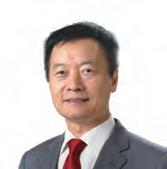
university in arts and sciences, driven by impactful research and innovations in the digital era. Achieving this vision requires a blend of talent, dedicated students, and lively research activities. This issue exemplifies our distinctive mix of these elements.
In the Dialogue section, Prof Xie Haoran and his student Rosie discuss the development of AI and their collaborative journey in promoting AI and technology at Lingnan and elsewhere. Although the Olympics have ended, the spirit of sportsmanship thrives at Lingnan. Longho’s dedication to wheelchair fencing and Dr Mok Kam-ming’s contributions to sports development and education at Lingnan deserve special recognition. We are especially proud of Wai-man, the recipient of the Sir Edward Youde Memorial Scholarship and HSBC Greater Bay Area (Hong Kong) Scholarship, who is determined to promote Chinese culture through technology, reaching a wider audience with greater impact. I trust you will enjoy Prof Du Chunmei’s insights as much as I do as she discusses her awardwinning book and her role as Warden of Hall G.
This issue also features the story of the drone winner and the latest updates from our Science Unit’s sustainability projects, showing the diversity and agility of Lingnanians.
At the same time, our solidified foundation has allowed us to retain excellent staff who have contributed to Lingnan’s progress for decades. In the Special section, three staff members who have been at Lingnan for 30 to 40 years relate their experiences and reflect on their time here.
I hope you enjoy this issue as much as we enjoyed putting it together. Don’t forget to check out our YouTube channel at youtube.com/lneduhk for supplementary videos and more captivating content! █
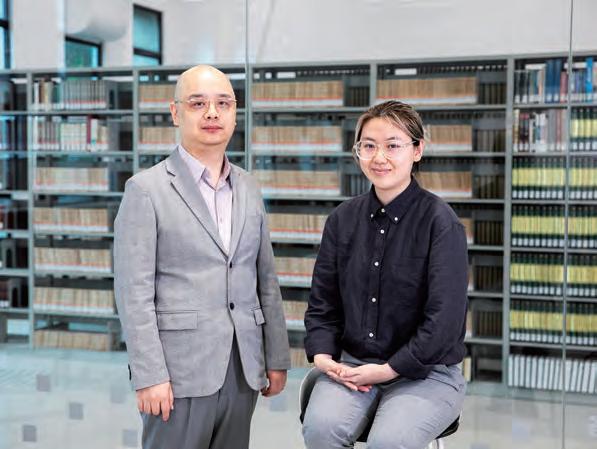
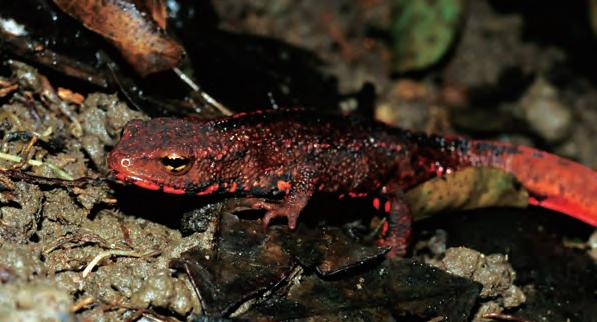
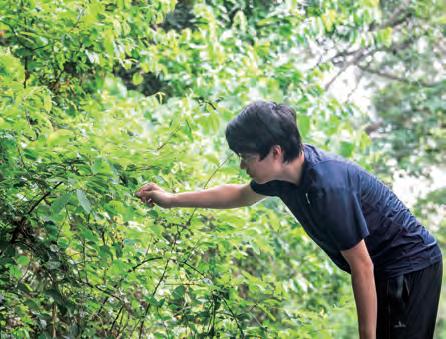
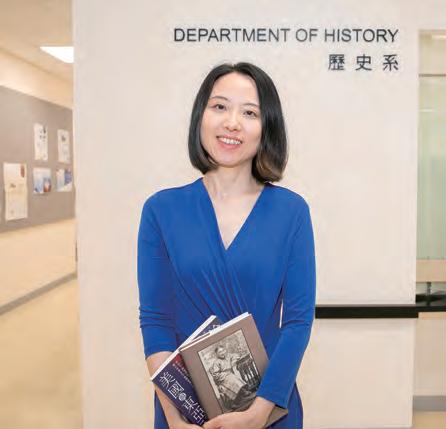
Prof Xie Haoran x Rosie
Prof
Forging
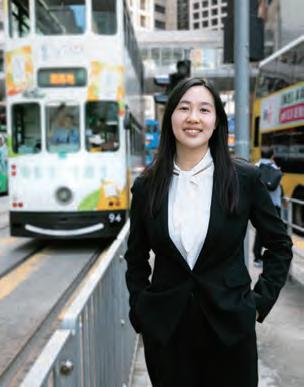
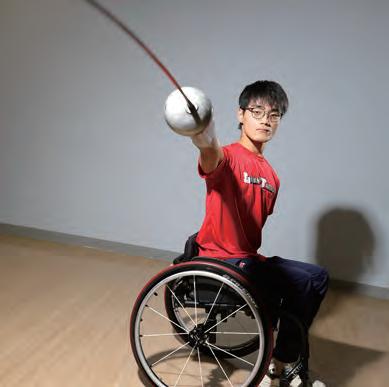
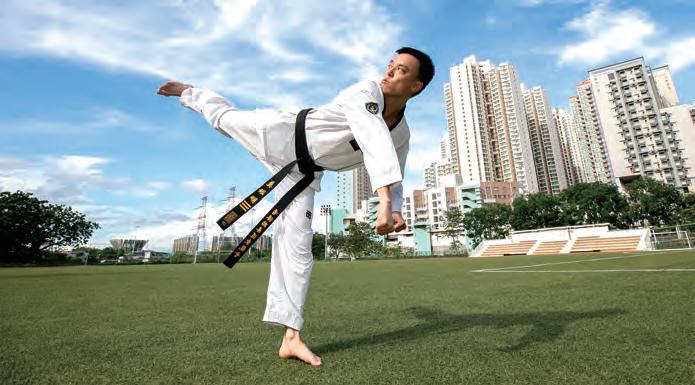
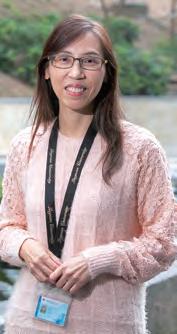
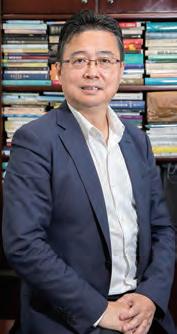
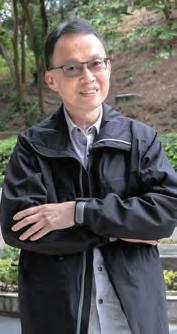
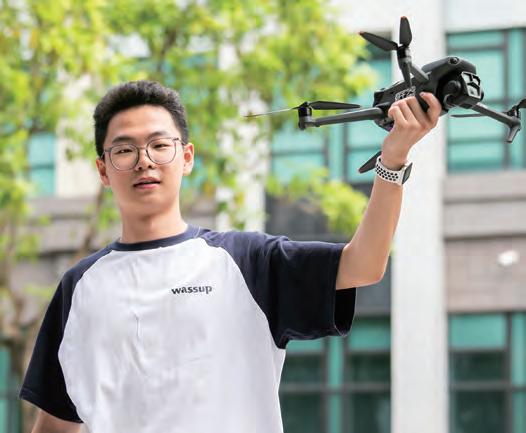
32 Faces
Time out
40 Feature
44 Column
46 Column
How AI will change the medical industry: the impact of AI medical and health advisory assistants - Michael So
48 Column Path to purpose - Bernice Li
49 Column
50 Lingnanian quotes
Mr Ernest Chan Chi-man
Prof Xin Yao, Vice-President (Research and Innovation) and Tong Tin Sun Chair Professor of Machine Learning, and Prof Sam Kwong Tak-wu, Associate Vice-President (Strategic Research), J.K. Lee Chair Professor of Computational Intelligence, Dean of the School of Graduate Studies and Acting Dean of the School of Data Science, are both distinguished scholars acknowledged as Highly Cited Researchers by Clarivate.
Prof S. Joe Qin, President and Wai Kee Kau Chair Professor of Data Science; Prof Xin Yao, Vice-President (Research and Innovation) and Tong Tin Sun Chair Professor of Machine Learning; Prof Sam Kwong Tak-wu, Associate VicePresident (Strategic Research), J.K. Lee Chair Professor of Computational Intelligence, Dean of the School of Graduate Studies and Acting Dean of the School of Data Science; and Prof Xie Haoran, Acting Associate Dean of the School of Data Science, Director of LEO Dr David P. Chan Institute of Data Science, Professor and Personin-charge of the Division of Artificial intelligence, are listed in the 2024 Edition of the Ranking of Best Scientists in the field of Computer Science by Research.com, while Prof Xin Yao is among China’s top 10 scientists.
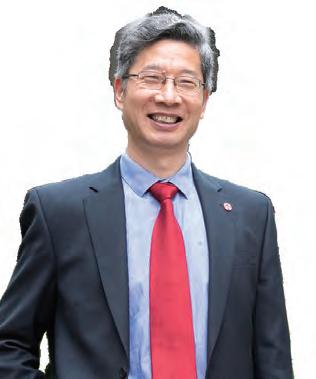
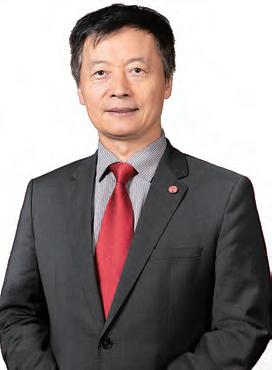

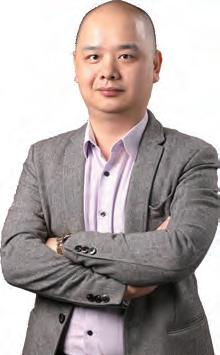
Prof Sam Kwong Tak-wu, Associate Vice-President (Strategic Research), J.K. Lee Chair Professor of Computational Intelligence, Dean of the School of Graduate Studies and Acting Dean of the School of Data Science, has developed the “AI-based Adaptive Visual Content Enhancement”, and Prof Xie Haoran, Acting Associate Dean of the School of Data Science, Director of LEO Dr David P. Chan Institute of Data Science, Professor and Person-in-charge of the Division of Artificial intelligence, has created the “Universal AI Interacted Automated Scenario Tester”, both of which won silver medals at the prestigious 49th International Exhibition of Inventions of Geneva.
The Lingnan Entrepreneurship Initiative team has also designed PureAuraa compact, energy-efficient, and ecofriendly air purifier, which has won 11 awards globally including Gold Awards at the esteemed iF Design Award 2024 and 49th International Exhibition of Inventions of Geneva.
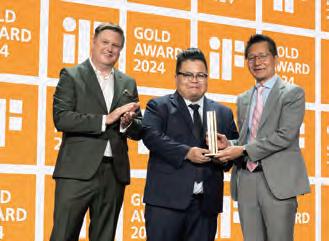

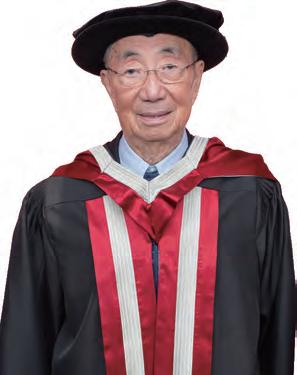
Illustrious physicist and Nobel Laureate, Prof Samuel C.C. Ting, was appointed an Honorary Director of the Lingnan University Institute for Advanced Study (LUIAS). Prof Ting was also given an honorary doctorate (Doctor of Science honoris causa) by Lingnan University.
LUIAS was established in March 2024 to attract leading scholars and wellknown experts from different academic fields worldwide. In crossing the disciplinary boundaries of the arts and sciences, promoting interdisciplinary collaboration, and integrating cuttingedge technology with whole-person education, the Institute focuses on interdisciplinary data analysis and aims to publish research with important social impact.
Prof S. Joe Qin, President and Wai Kee Kau Chair Professor of Data Science, is a Fellow of the National Academy of Inventors (NAI) and of the Hong Kong Academy of Engineering Sciences (HKAES), and an European Academy of Sciences and Arts (EASA) member. Prof Sam Kwong Tak-wu, Associate VicePresident (Strategic Research), J.K. Lee Chair Professor of Computational Intelligence, Dean of the School of Graduate Studies and Acting Dean of the School of Data Science, also holds fellowships in the NAI and the HKAES.
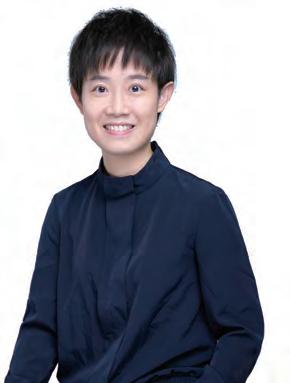
Prof Paulina Wong Pui-yun, Head and Associate Professor of the Science Unit, becomes one of the seven new members of the Hong Kong Academy of Engineering Sciences (HKAES)’s Young Member Section 2024. She will continue advancing engineering and science development in Hong Kong to foster the growth of innovation and technology industry of the country.
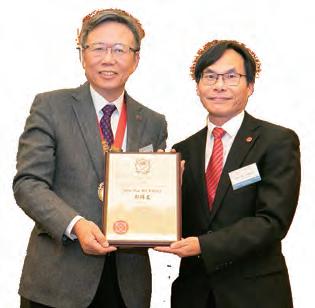
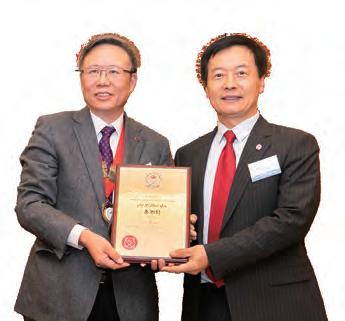

對談:
謝浩然教授
Prof Xie Haoran
數據科學學院署理副院 長、嶺南教育機構陳斌博 士數據科學研究所總監、
人工智能學部教授及負責 人
嶺南大學數據科學學院署理副院長、嶺南 教育機構陳斌博士數據科學研究所總監、 人工智能學部教授及負責人謝浩然教授擁 有電腦科學和教育學兩個博士學位,他的 研究範疇包括人工智能(AI)、大數據、教 育科技等。謝教授獲列入美國史丹福大學 全球首 2% 頂尖科學家,也是三本愛思唯 爾期刊的總主編。
謝教授的研究計劃涵蓋多元範疇,包括將 AI 應用於健康數據,以提升憂鬱症患者的 治療效果。他亦致力於探索 AI 如何促進教 育範疇的研究,以及如何提高教育資源的 可近性。其團隊利用 AI 為學生製作個人化 的電子學習內容,於 2022 年第七屆加拿 大國際發明及創新比賽中榮獲金獎及國際 特別獎。在 2024 年,謝教授憑藉可應用 於全球鐵路訊號系統測試的發明「通用人 工智能交互式自動化場景測試器」,勇奪 第 49 屆日內瓦國際發明展銀獎。

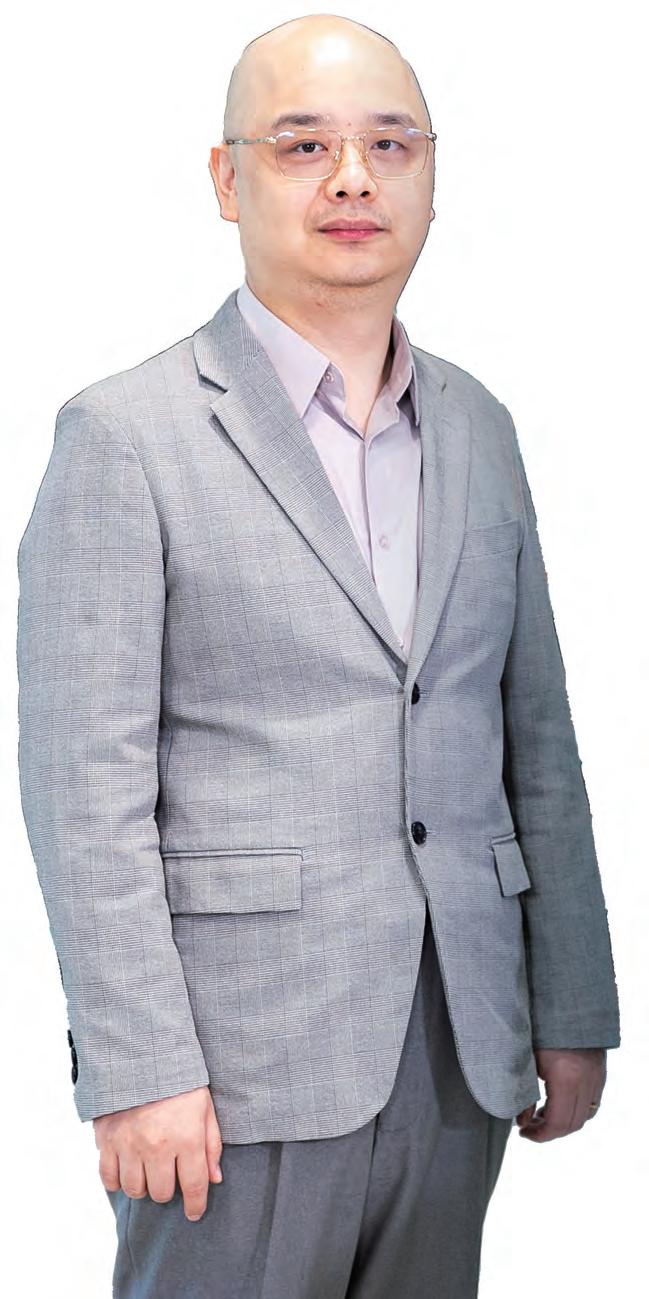
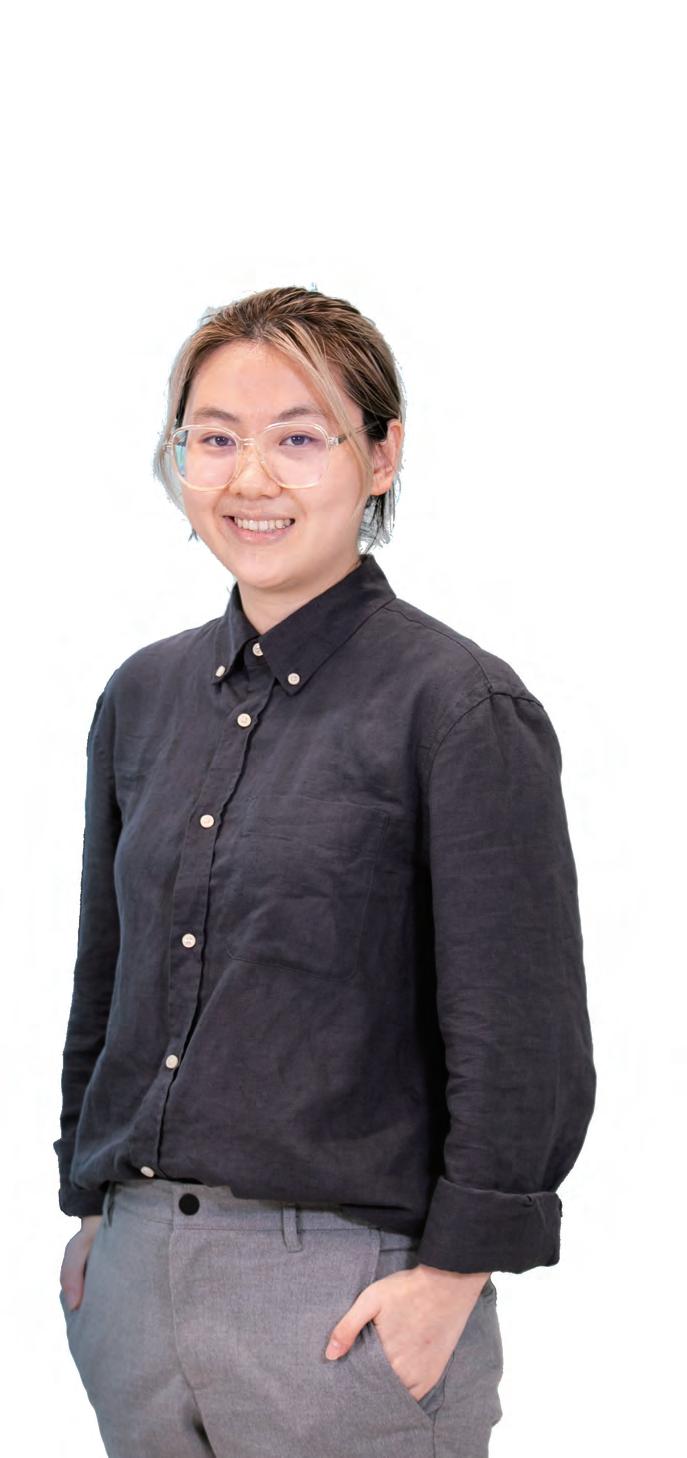
馬曉瑞
Rosie Ma Xiaorui
數據科學學院商學哲學 碩士課程學生
Rosie 是嶺南教育機構陳斌博士數據科學 (榮譽)理學士課程的首屆畢業生,並以全 班第一名成績畢業,獲頒唐天燊博士伉儷 優異獎(2022-2023)。她自 2023 年 9 月起 攻讀數據科學學院商學哲學碩士課程,專 注於大語言模型的研究,謝浩然教授正是 她的導師。
在嶺大就讀期間,Rosie 珍視與其他大學交 流和合作的機遇,例如在本科期間曾到復 旦大學作交流生,去年 9 至 12 月則與廣州 大學合作開展 AI 與教育的項目。她已申請 在嶺大攻讀博士學位,繼續在 AI 科研道路 上開拓新天地。

Rosie:謝教授你是我的導師,非常高興 有機會和你討論一下嶺南大學人工智能 (AI)的教與學。作為 AI 及大數據的傑出 學者,能否簡介一下你的學術歷程?
謝教授:
我選擇在這個領域發展是受到 家庭所影響。我父親以前是大學老師, 爺爺是高中老師,嫲嫲和外婆都是小學 老師,所以我從小就受他們的薰陶,立 志成為一名老師。在 2000 年初時,軟件 工程比較流行,我也比較感興趣,便以 此為專業,後來一直在軟件、電腦,以 及 AI、演算法等領域發展。
多年以來,我認為並非一定要在 AI 的基 礎或演算法上進行非常深入的研究,我 希望能夠把 AI 和大數據應用到生活中, 幫助改變教育、醫療等各個領域,提升 及促進對整體社會有益的技術和發展。
Rosie: 你其中一個跨學科項目在第七 屆國際發明創新大賽上獲得金獎和特別 獎,你的研究如何促進科學進步,為世 界帶來改變?能否分享一下你最近的研 究成果?
謝教授: 這是在加拿大的發明獎比賽上 所獲得的獎項。我們主要將 AI 與教育的 語言單詞學習理論相結合,開發了個性 化的詞彙學習系統。通過 AI 演算法,系 統會根據學生的學習能力、學習過程喜 好,以及個人測評結果來推薦單詞學習 任務。當中也考慮到任務多樣化等促進 學習的理論,從而得到個性化的學習過 程。我們開發了系統原型,並使用一些 AI 推薦演算法,提升學生的學習效果。
至於近期,我們集中做 AI 範疇中較熱門 的生成式人工智能,如 ChatGPT,包括 如何利用它去增強生成的數據用來做情 感分析,還有像 Rosie 你也有參與、把帶 偏見的句式變得中性化,以及如何獲取 文本和句子表徵等科研任務。相關科研 應該能在下游得到良好應用,例如在醫 療範疇中獲取病人的表徵,找到相近的 病人並向醫生推薦治療方案和參數等, 亦可繼續在教育的個性化推薦上,分析 學習者的表徵並作出推薦。
Rosie:剛成立的數據科學學院使嶺大的 文理融合教學模式邁向新台階。作為署 理副院長,你計劃如何推進嶺大 AI 教與 學的發展?
謝教授:嶺南大學數據科學學院在 5 月 2 日成立,我們對此非常激動。除了一些 很成熟的課程外,學院將開發更多修課 式研究生課程,如工業數據分析理學碩 士(MScIDA)和智慧城市技術及應用理學 碩士(MScSCTA),以及考慮開發第一個 專業博士。
另一樣是把教與學與其他方面結合,包 括和文學院、商學院、社會科學院等展 開跨學科課程、舉辦講座和在研究上合 作,冀通過跨專業、跨領域及自身博雅 教育的優勢,推動數據科學發展。我理 解的數據科學學院,相當於嶺大數據科 學的一個 hub(樞紐),在教與學和研究 方面為各個學院帶來數據科學的知識。
Rosie:最近嶺大推出很多 AI 教學的新舉 措,包括將生成式人工智能(GAI)課程列 為一年級學生的必修科等。嶺大及數據 科學學院如何培養學生的 AI 素養及慎思 明辨的能力?
謝教授:我們希望把 GAI 作為一個工具, 幫助同學形成相關概念和思維,並將之 廣泛應用於未來職業發展中。其實 GAI 工 具不斷地推陳出新。那怕像嶺大迅速地 推出 GAI 課程,可能在學生畢業時他用的 工具和軟件已然改變。但只要從中培養 了 AI 素養,我相信學生畢業後能在工作 中去學習和理解這些新工具,為整個職 業生涯發展帶來助力。
Rosie: 根據經驗,你認為 AI 在未來 5 至 10 年會如何發展? AI 最終會否像我們所 擔憂般取代人類?
謝教授: 首先,我認為 AI 在未來的發 展速度會很快。隨著技術的不斷進步, GPT 在這一兩年裡面迭代的版本可能已 有三四個,包括現在的 GPT 4o,所以我 相信 AI 的能力會越來越強。
另一方面,很多領域的老師和從業者都 擔憂工作會被 AI 取代,例如做翻譯研 究、語言研究的老師。但我覺得他們不 用特別擔心,因為老師的角色正在轉 變。有了 AI 以後,老師從一個知識傳授 者變成了 facilitator(引導者),教授同 學們如何去運用,以至道德地或正確地 使用 AI 工具和軟件去學習及完成任務。 我們可以把 AI 看作是一個工具,而非取 代人類的東西。即使將來有更強的強人 工智能出現,也需要老師或各行各業的 人,去告訴下一代怎樣使它們更好地協 助人類完成任務。我相信 AI 是放大人類 的能力,而非取代人類。我們也肯定會 和 AI 一起,在人類社會找到正確的共存 模式。
謝教授:Rosie
你本科修讀我們的數據科 學課程,現正修讀研究型碩士。在人工 智能眾多領域裡面,為甚麼選擇跟語言 模型相關的研究方向?
Rosie:其實在本科時,我已從你和其他 教授的課上學到很多基礎語言模型,並 在課堂項目中作出實際應用,後來在實 習中也做過如分析新聞情感等任務,所 以我對語言模型具備一定的知識基礎。 直到 2023 年,大語言模型像 ChatGPT 這 一類工具出現,讓我真正對語言模型產 生了非常濃厚的興趣。一開始我可能只 是用它去寫電郵或代碼,但逐漸發現在 學習和工作中都離不開它。
另一個原因是,現今語言模型如ChatGPT 的使用已非常廣泛,但它仍存在許多 問題,就像教授你剛剛提到我做的項 目——語言生成的安全性和公正性存有 隱患,這是開發者、使用者,以及學術 界都有廣泛討論和研究的問題。所以我 研究語言模型不僅是為了興趣,也是為 了解決現實問題。

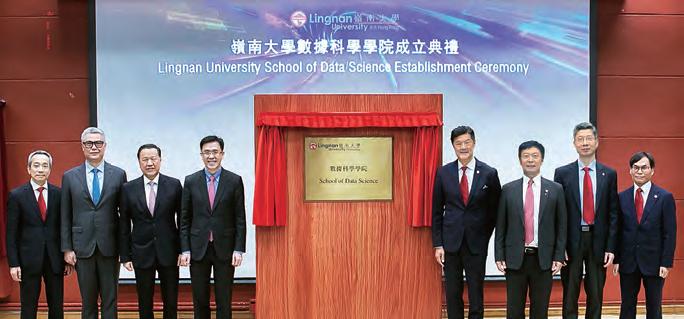
嶺南大學數據科學學院於 2024 年 5 月 2 日成立, 使嶺大的文理融合教學模式邁向新台階。
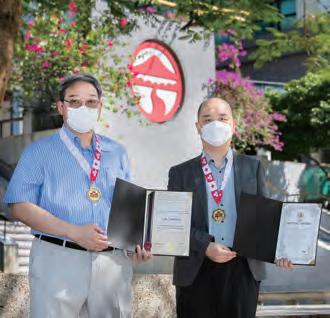
謝浩然教授(右)2022 年於加拿大國際發明及 創新比賽中獲得金獎及國際特別獎。
謝教授: 在五年的學習過程中,你覺得 嶺大數據科學及 AI 的教與學有甚麼獨特 之處?
Rosie:首先肯定是能夠在課堂上接觸到 像你這樣優秀的教授。我記得在本科的 時候,學系已擁有兩位史丹福「全球首 2% 頂尖科學家」。到今年數據科學學院 成立,我們有更多位頂尖的全球首 2% 科 學家,他們在我讀本科時都曾經教過我。 另一獨特之處是嶺大實行小班教學,一 班可能二十至三十人,教授可以更關心 或更能滿足每位學生的需求。我也是從 謝教授的機器學習課程中認識和了解到 你的研究,然後在你的指導下讀研究生 課程。
其次嶺大整個學年都會提供去海外交流 的機會,是非常寶貴的經驗。我當時在 寒假到復旦大學交流並修讀人工智能課 程,學到非常硬核的數學知識,也認識 了許多港澳學校和海內外大學的同學。

謝教授: 嶺南大學如何培養你在研究方 面的興趣?

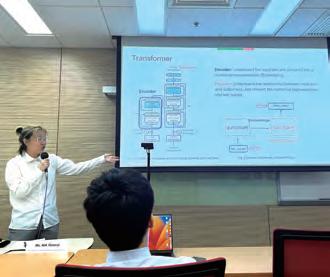
Rosie在嶺南就讀本科和碩士課程,專注於 大語言模型研究。
Rosie:在本科期間,我記得教授你在課 堂上已教過一些非常前沿的人工智能模 型,加強了我對 AI 的初步興趣。在研究 生階段,於數據科學學院成立之後,每 星期都會有不同大學的 AI 專家學者來作 學術交流及分享,他們擁有非常成熟的 知識框架,讓我們迅速了解到新領域的 研究現狀和背景。我覺得這對培養研究 的興趣及靈感的啟發都帶來非常龐大的 影響。
謝教授: 你有一項研究是跟廣州大學合 作的,這種和大灣區院校或機構融合的 方式,為你帶來怎樣的啟發和機遇?
Rosie:我覺得這種機會是香港與大灣區 其他城市自由交流的體現。在這次機會 中,我了解到非常具有內地特點的研究 問題,包括一些實際應用方面的問題。
就像我當時處理的數據是來自中國獨有 的一個教學平台,讓我對內地實際應用 的課題有所啟發,在後續研究中也帶有 更多元的視角。其次,大灣區院校提供 了許多資源,包括讓我認識不同學者, 構建學術網絡。
謝教授: 你最近在嶺大申請了從研究型 碩士轉到研究型博士,你將來的職業發 展是甚麼?想作出怎樣的貢獻?
Rosie: 在研究方向而言,我希望在博 士期間能更多地解決我剛剛提到像語言 生成的公正性與公平性這類問題,它可 能是一個跨學科議題,例如找到社會中 的一些不公正如何被語言模型在語言生 成中所放大、如何減少這種不公平性的 生成,這是我主要想研究的議題—— 一個道德的 AI 或者負責任的 AI,它會以 怎樣的方式呈現給人類。從職業發展上 來講,我以謝教授你為榜樣,向你學 習。 █ 即看對談精彩內容

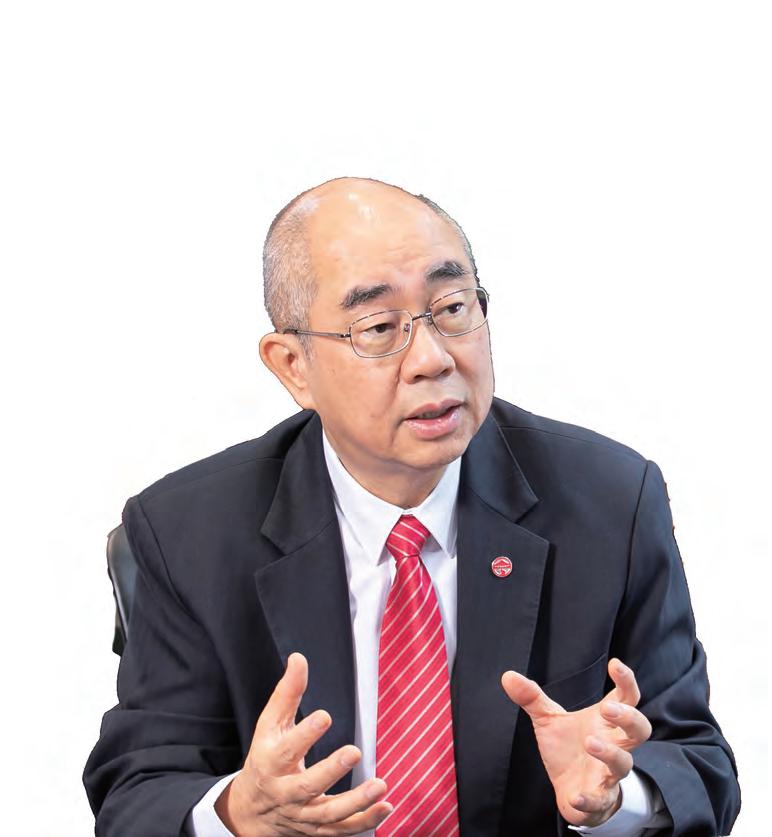
I hope to work together to cultivate the ‘4Cs’ in students through the integration of AI and liberal arts education: Creativity, Critical thinking, Communication, and Collaboration, equipping them with innovative and entrepreneurial mind to seize the new opportunities of digital transformation.
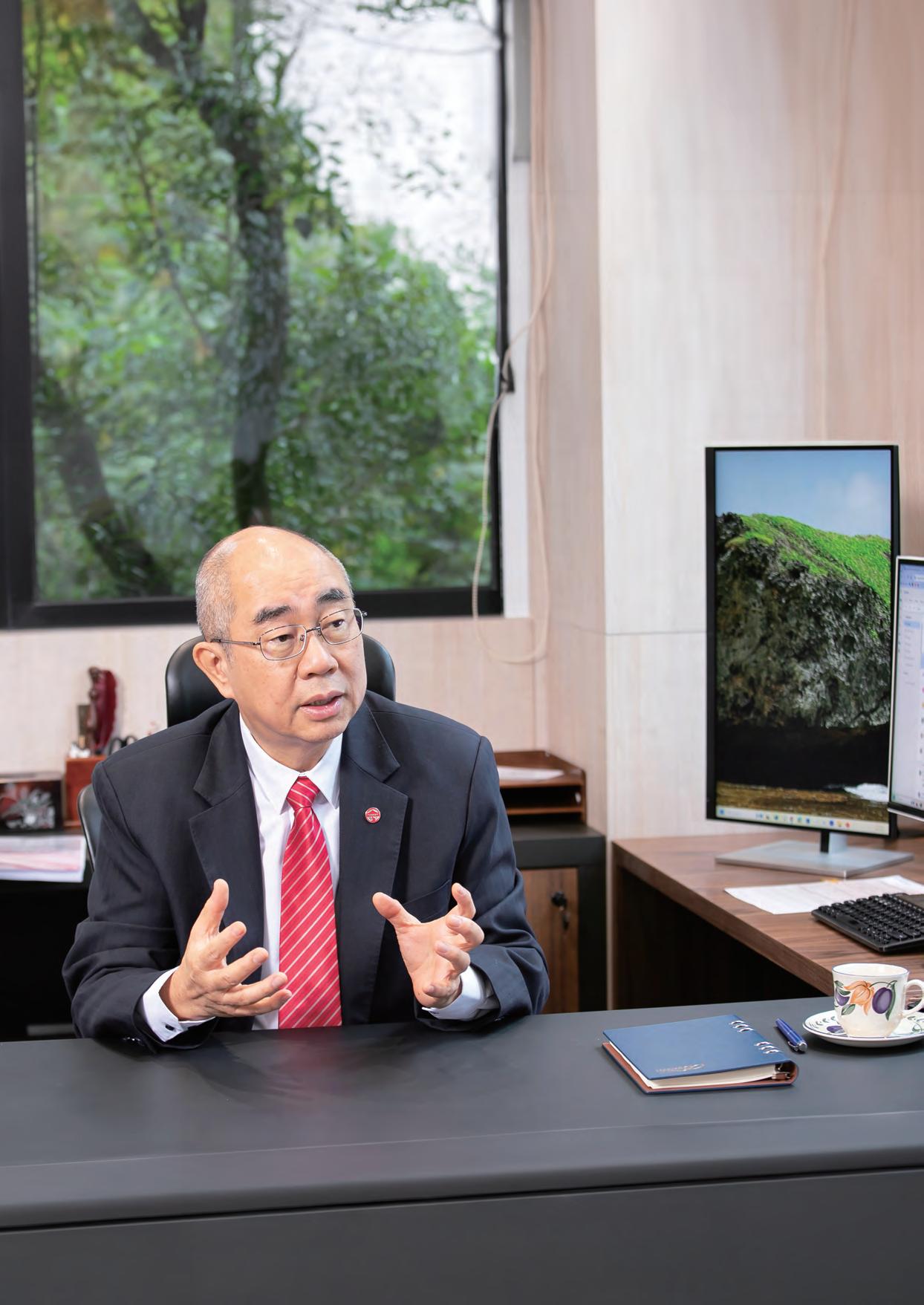
Prof Raymond Chan Hon-fu Vice-President (Academics) cum Provost
Lam Man Tsan Chair Professor of Scientific Computing
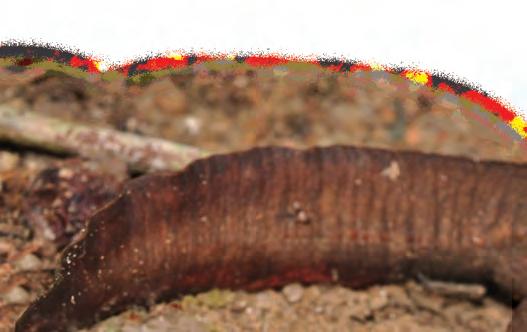
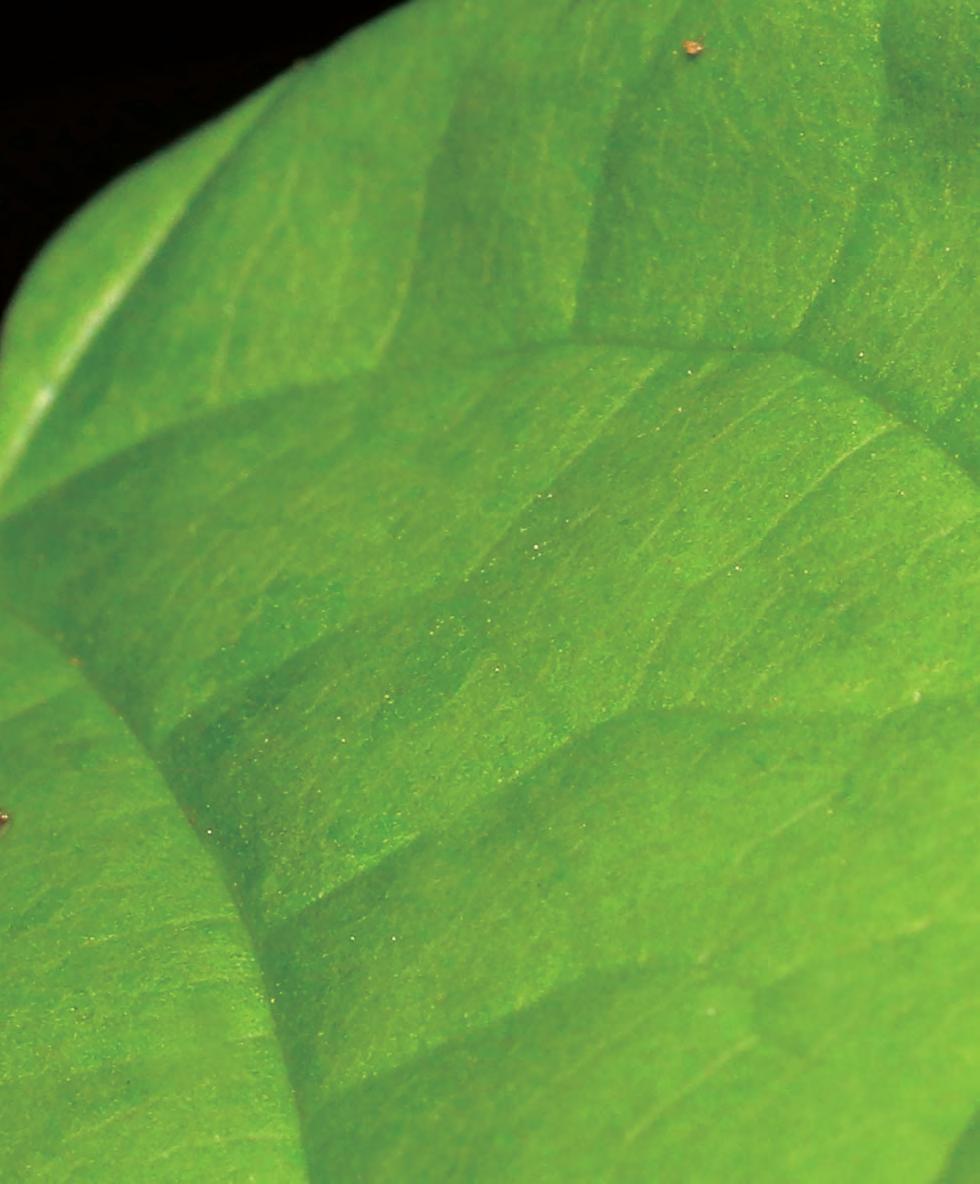
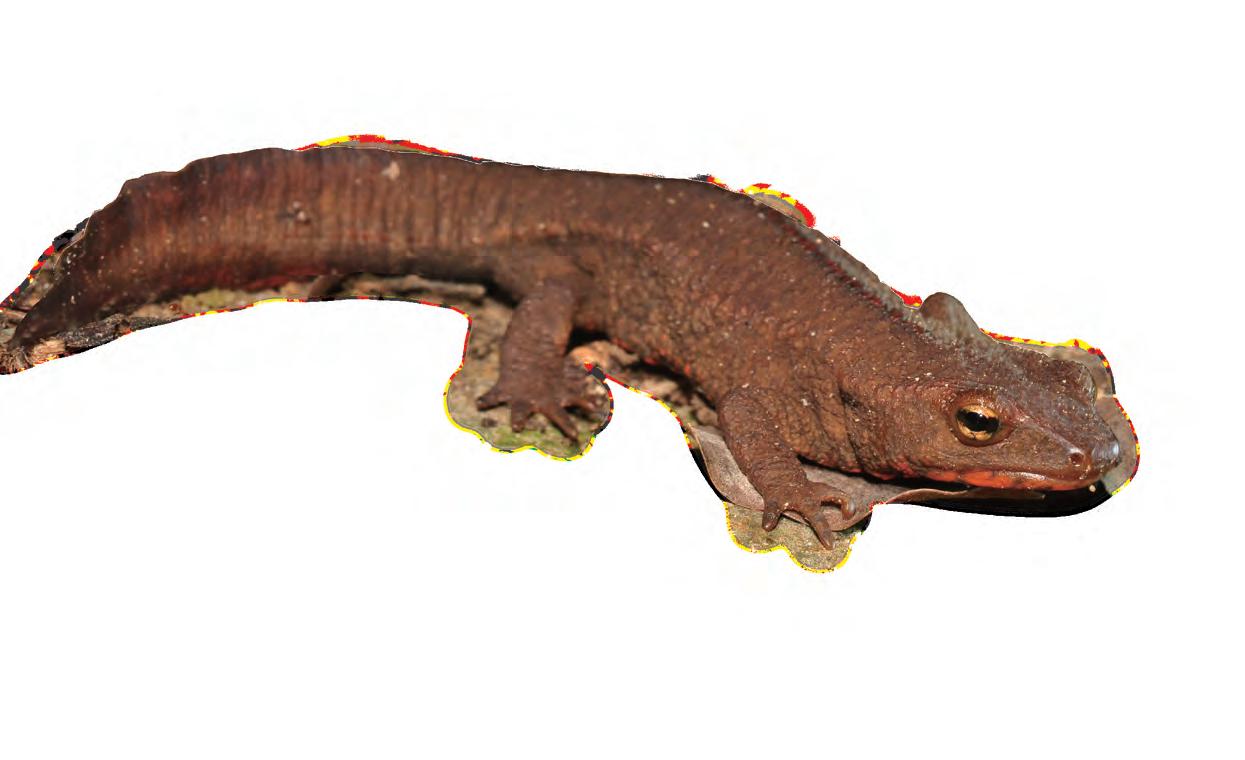
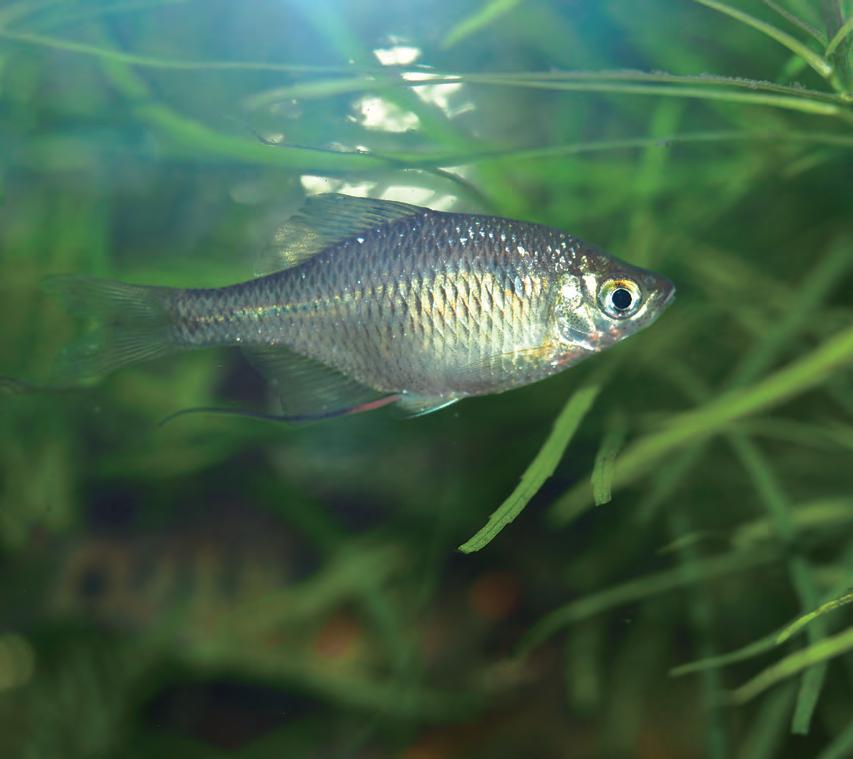
Theteam of scientists and students cares little creatures - from amphibians, reptiles, freshwater turtles, fish, and insects - more than you can imagine.

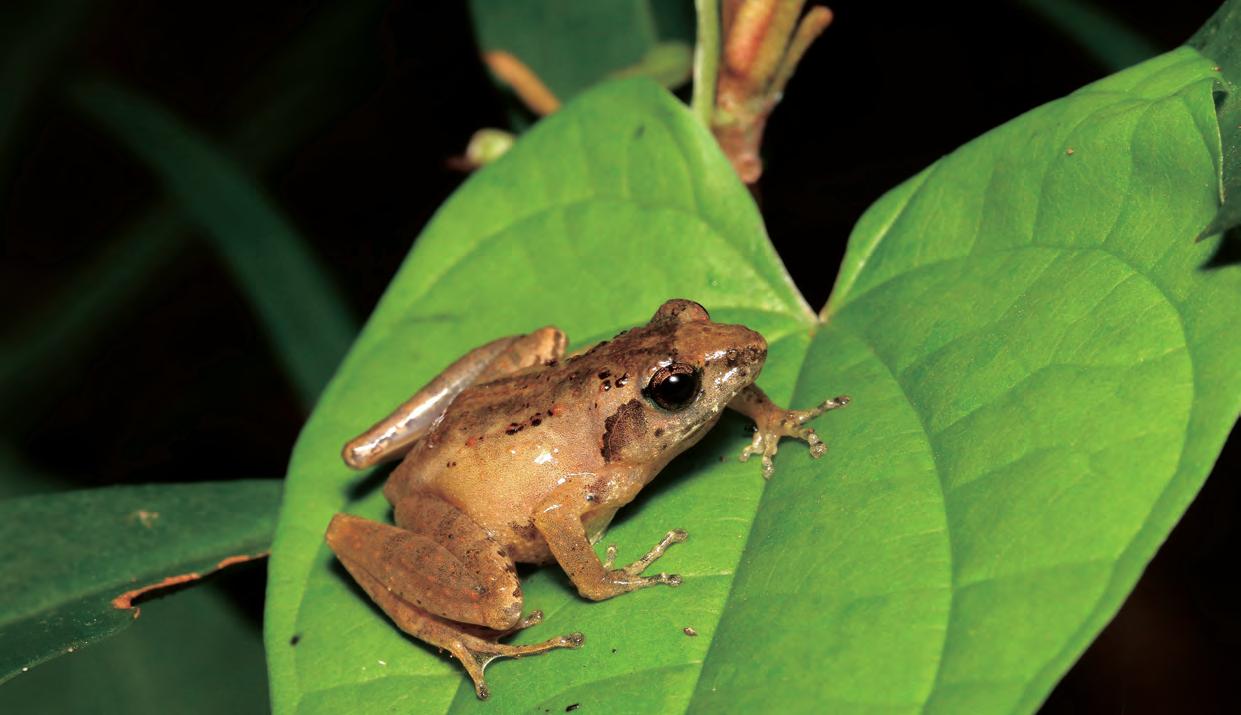
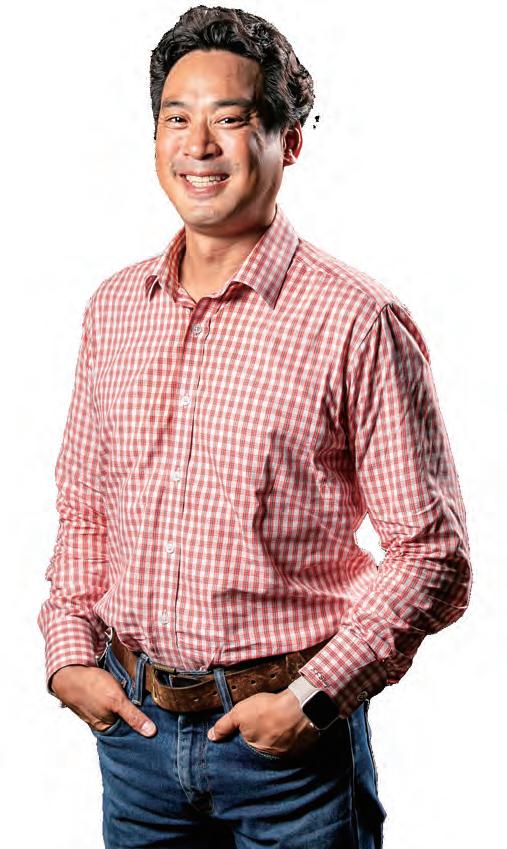
Committed to alignment with the United Nations’ Sustainable Development Goals (SDGs) 14 (life below water) and 15 (life on land), the brilliant minds at the Science Unit (SU) are taking action to preserve and promote biodiversity.
This is being done through a number of groundbreaking research projects that address the challenges facing different species as a result of climate change, habitat loss, and other factors, and find ways to reverse current trends and restore hope.
One such series of projects focuses on amphibians and reptiles, which play important roles in the natural ecosystem and contribute to the intricate web of life.
These creatures have long been a source of fascination for Prof Jonathan Fong, Associate Dean (Administration and Education) of the School of Interdisciplinary Studies and Associate Professor of the SU and Prof Sung Yik-hei, Adjunct Assistant Professor, and one species has become a particular cause for concern. The Romer’s Tree Frog (Liuixalus romeri), a protected amphibian native to Hong Kong, is smaller than the human thumb and, worryingly, is facing population decline. Past efforts to monitor the species in the wild have been limited, meaning not enough is known about its overall status, including current numbers and rate of reproduction.
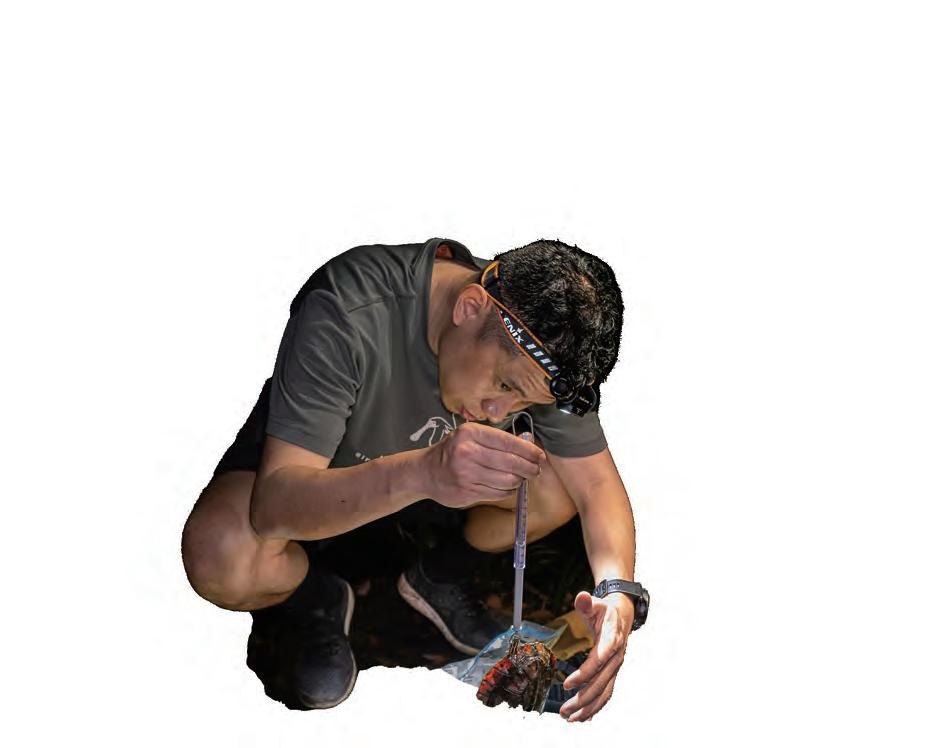
To address these issues head-on, Prof Fong and Prof Sung are leading a wide-ranging conservation project to assess the distribution and population status of Romer’s Tree Frog across Lantau Island and evaluate the impact of emerging threats. That includes investigating the impact of the greenhouse frog, an introduced species, and mosquito larvicides, as well as conducting a comprehensive survey of existing habitats and population health.
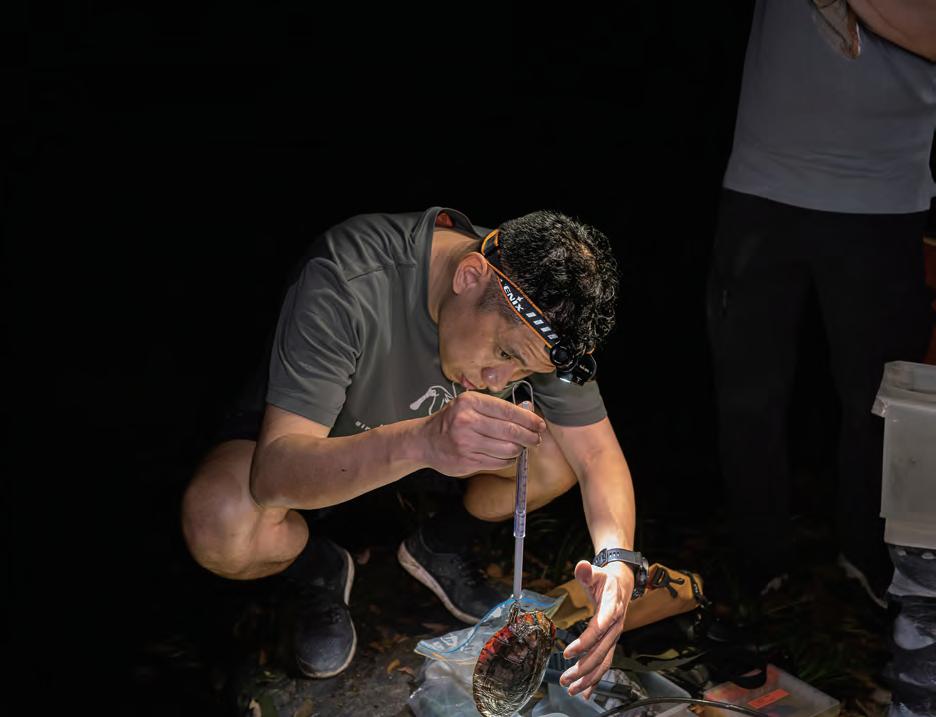
Besides this initiative, the SU team has notable interest in studying turtles. One species native to Hong Kong and Southern China, the Golden Coin Turtle (Cuora trifasciata), holds special cultural significance and plays a vital role in nutrient cycling within its ecosystem.
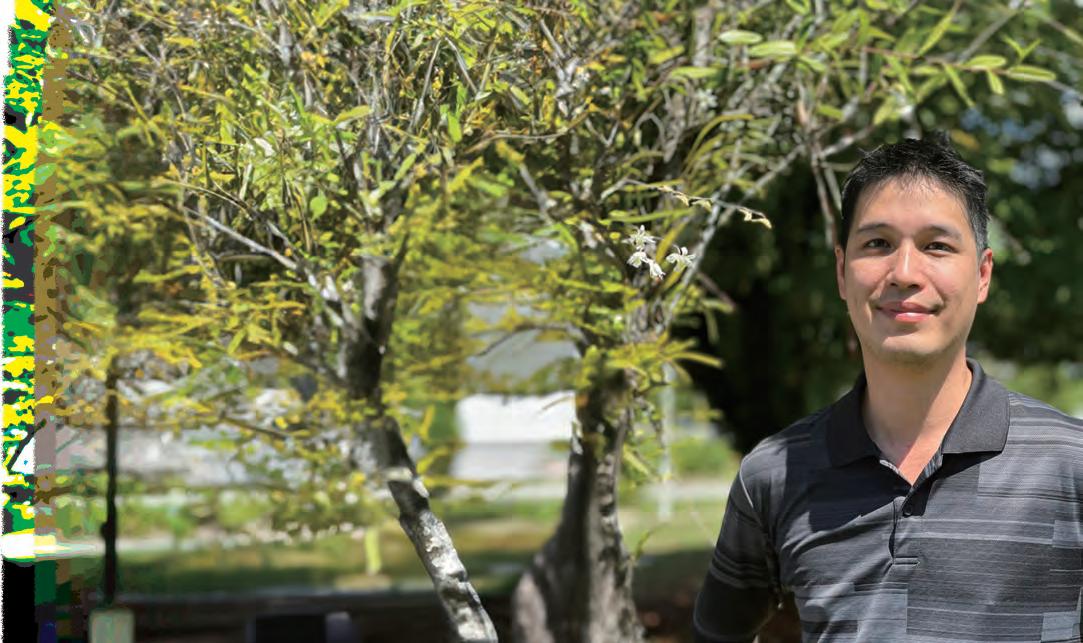
The SU team has, though, made some alarming discoveries regarding the disappearance of three distinct species of wild freshwater turtles in Hong Kong, including the Golden Coin Turtle. This is a real cause for concern, so one priority for the team is to raise public awareness and encourage urgent action against poaching.
To track and monitor freshwater turtles, researchers employ environmental DNA (eDNA) techniques, which are better than conventional trapping methods in terms of sensitivity and effectiveness. Such techniques involve extracting eDNA from cells found in the dead skin, feces and blood, which living organisms leave behind in their natural environment.
By collecting samples from water, filtering out cells, and using polymerase chain reaction testing procedures, it is possible to determine the presence and even the number of turtles in a given area. This information contributes to a more comprehensive understanding of the ecological dynamics and why things are changing.
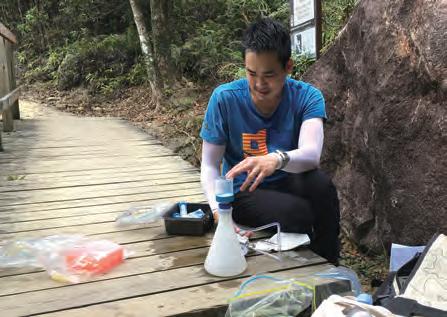
Despite the scientific validation of this eDNA approach for studying aquatic vertebrates, it has not yet been widely adopted. Therefore, one of Prof Fong’s objectives is to enhance and refine the methods and then locate, monitor, and protect more endangered wild turtles, providing a model for others to use in China and around the world.
In principle, these techniques can also help in protecting the often unnoticed Hong Kong Newt, a local amphibian which is classified as “near threatened” on the International Union for Conservation of Nature (IUCN) Red List of Threatened Species. Like Romer’s Tree Frog, this newt is officially protected under the Wild Animals Protection Ordinance, but more can still be done.
In seven years, Assistant Professor Anthony Lau Yin-kun from the SU has documented more than 3,000 Hong Kong Newts, revealing insights about their habitat and underpinning efforts to raise public awareness about the need for preservation.
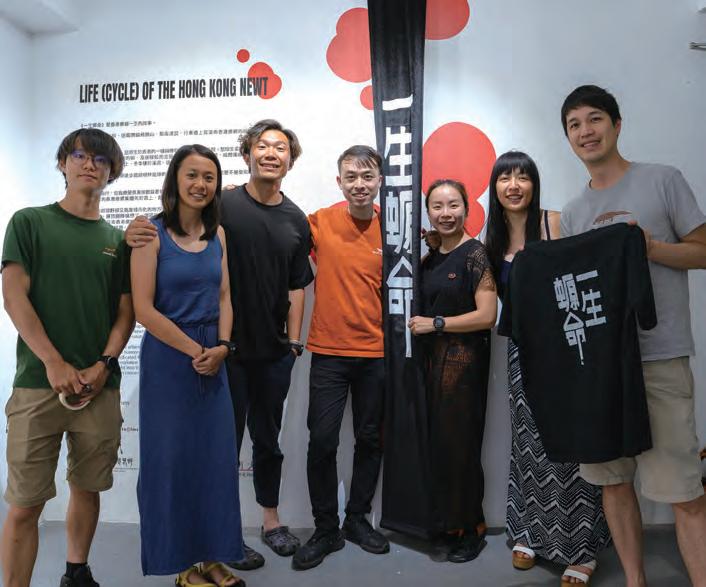
One of the major threats these newts face is roadkill incidents. Especially during their early spring migration from streams to forests, many individuals tragically fall victim to motor vehicles when trying to cross roads.
Recognising the urgency of the situation, the SU led a roadkill survey programme this year. As part of a collaborative effort, citizen scientists were invited to collect vital data during the late March to April migration season, and this has contributed to a fuller understanding of the issue.
To that end, Prof Lau also served as the academic advisor for an April exhibition on the life (cycle) of the Hong Kong Newt, and an ongoing project is examining the effects of three factors detrimental to prospects for the newt’s survival: parasitism, chemicals, and anthropogenic disturbances.
The importance of the endeavour is confirmed by the fact that the Research Grants Council has awarded funding to the tune of more than HK$1 million.
Along with studying amphibians, Prof Lau’s SU research team has also been monitoring the Rosy Bitterling (Rhodeus ocellatus), a freshwater fish listed as a key conservation concern in Hong Kong. This species is found in the Ho Sheung Heung area of Sheung Shui. This fish, easily distinguished by its pale orange-red colour and a distinctive bluish-green line along the rear half of its body. Comprehensive efforts are needed to safeguard the species.
Another topic of particular interest is the ecological impact of the non-native Australian Redclaw Crayfish, which was introduced in Hong Kong in recent years with generally negative consequences.
Viewing it as a harmful invasive species, the SU is using advanced technologies to help eradicate it and restore the previous natural balance. Doing this involves mark-recapture and eDNA methods and is seen as a key step in achieving the broader goal of preserving Hong Kong’s ecological integrity and ensuring sustainable coexistence among species.
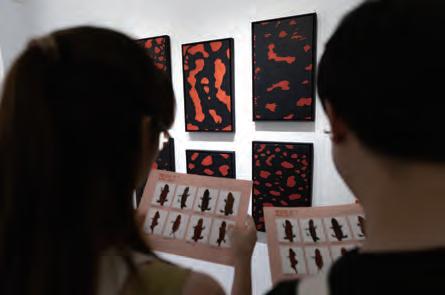
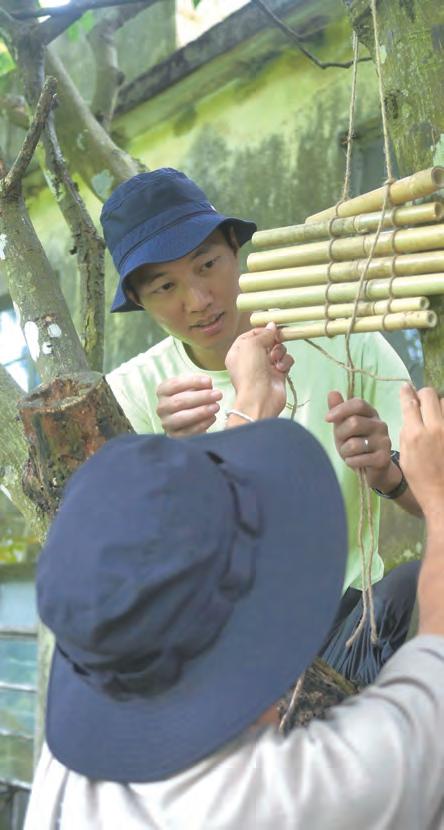
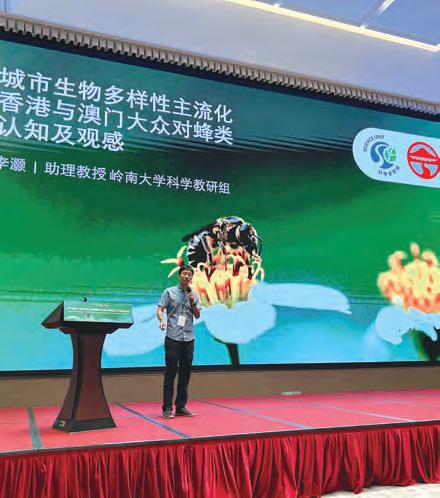
Prof Lee speaks at the Nature Education and Ecological Economy Forum.
In a separate project, SU staff are doing breakthrough work to unveil and demystify the many marvels of the intricate world of ants and bees. For instance, in 2023, Assistant Professor Roger Lee Ho was part of a team whose research was detailed in a publication entitled “FirstRecordoftheGenusTemnothoraxMayr, 1861(Formicidae:Myrmicinae)inHongKong,withDescriptionsof TwoNewSpecies”.
This article provided new insights on regional biodiversity and into the lives of these newly documented ants. Another initiative undertaken in collaboration with an art studio in Mui Wo saw the creation of “bee houses” that combine ceramic craftsmanship with the fruits of scientific research. Strategically placed on sites around Lantau Island, the aim is to provide suitable shelter for bees, while also exemplifying a fusion of art and science.
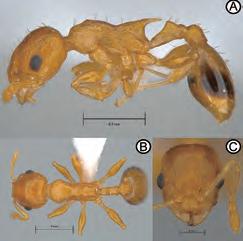
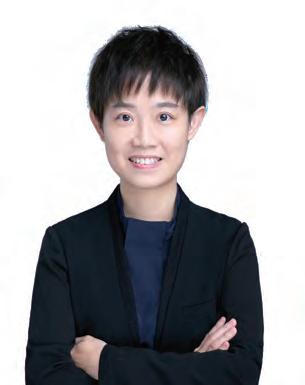
To pass on his knowledge and experience, Prof Lee featured as a distinguished speaker at the Nature Education and Ecological Economy Forum held in Zhuhai earlier this year. It was a chance to dispel misperceptions about bee species in Hong Kong and Macau and add momentum to the cause of urban biodiversity and make it a mainstream subject.
This imperative extends, of course, to the need to improve wetland conservation practices. So, Prof Lee and Prof Paulina Wong Puiyun, Head and Associate Professor at the SU have been looking into the wise use of wetlands and how they change in proximity to a “human-modified landscape”.
Besides this, Lantau offers excellent places for study, with a delicate balance being maintained between thriving farms, small settlements, largely untouched rural areas, and builtup communities. The farms play a vital role as buffers against human disruption, and they facilitate the movement of wildlife to and through country parks, emphasising their ecological value.
To understand the unique variety and distribution of species, the research teams have put together an evidence-based scientific programme to identify the determining factors.
This includes establishing the first ecological baselines for major insect pollinator taxa such as bees, wasps, flies, butterflies, diurnal moths and beetles, specifically in farmland. The intention is to certify insect pollinator-friendly farms in the Mui Wo area, while actively involving farmers in the process. The hope is to spark a broader movement toward nature-based agriculture in Lantau, at the same time promoting biodiversity and supporting both local communities and the natural world. █
Graduate student Desmond Tan Kai-teck took a bold step when deciding to switch from English to environmental science, but it has paid off with the recent award of a coveted Sir Edward Youde Memorial Fellowship. His current research focuses on harvestmen, little-known creatures from the family of arachnids, or spiders, and it is leading to some amazing new insights.
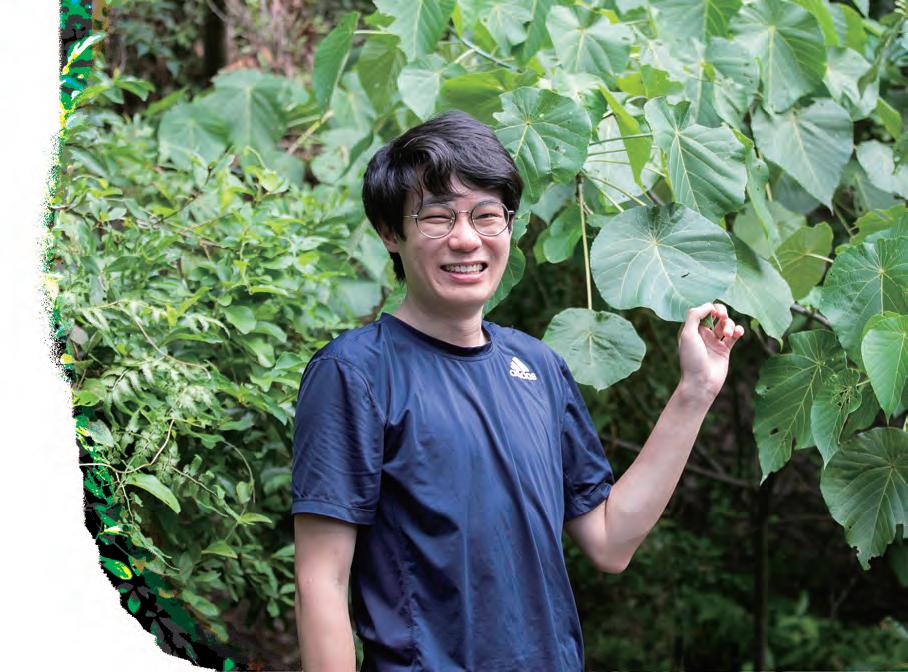
When did you first come across harvestmen?
What were the challenges and rewards of changing your field of study?
I have always had an affinity for science, particularly biology, though I love English too. Obviously, I had to “relearn” a lot of the basic theories and terminology, some of which were familiar from secondary school, but also pick up lab work techniques and understand how to conduct experiments and write reports. The transition was made easier, though, by being an intern under Prof Jonathan Fong of the Science Unit in my final undergraduate year. He showed me the ropes concerning scientific study and practices.
What happened after that?
I remember my first project was using environmental DNA to test for the presence of an endangered species of eel in Hong Kong’s wet markets. The objective was to see if there was any illegal consumption of protected species going on locally. This was an opportunity to learn a lot of basic science fairly quickly, although I do still struggle to name all the animals I see in the wild.
My first encounter was about six months before starting my MPhil. I was working as a full-time research assistant while looking out for a topic of interest. Helping colleagues out in the field improved my knowledge of wildlife in Hong Kong’s woodlands, and on one such trip a spider-like creature crawled on to my hand. It had disproportionately long legs, two round eyes set atop some kind of stalk, and a rounded body with no segments. I thought it looked extremely weird and was possibly an unknown species of creepy-crawly, but a colleague mentioned harvestmen, saying not much was known about them. I told my supervisor, who was incredibly supportive, and have since made it my mission to learn more.
For you, what is the main appeal?
Up close, they are really adorable, and they are not difficult to find, being quite widespread in Hong Kong. Also, the biodiversity among harvestmen is pretty extensive, so there is a lot to uncover because this is a relatively unexplored field in Asia. That can make it difficult to decide on research methodologies and standards and, at times, I am resuming lines of inquiry that first began almost a century ago. Fortunately, I have had help from Dr Zhang Chao, a professor at Hebei University and Lingnan’s Prof Fong on better ways to capture harvestmen and study them.
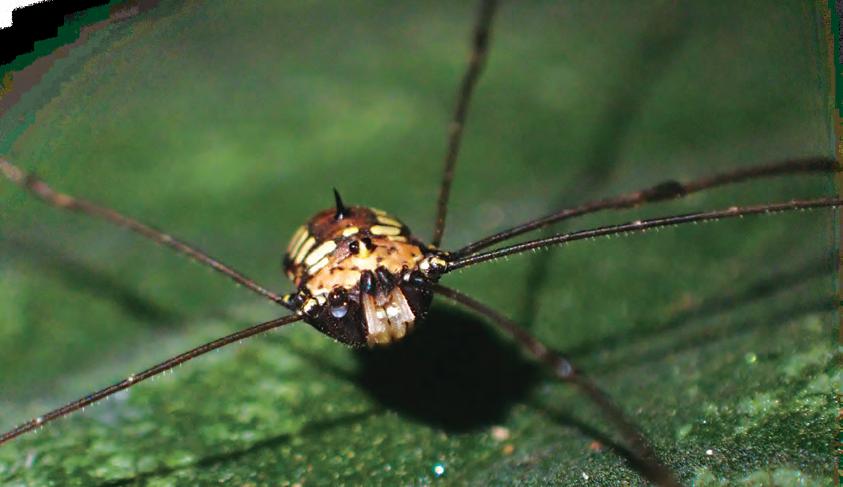
What have you set as the next objective?
The ultimate goal is to set up a checklist for harvestmen in Hong Kong. That means discovering and describing all the species found here. With more funding and, hopefully, continued support from Lingnan, we will be able to extend the study to Mainland China and perhaps even to other countries in Southeast Asia by collaborating with taxonomists there. At present, we are pitching proposals for further funding and, if we succeed with that and can carry on, Lingnan will be one of the few universities in the world conducting in-depth studies on harvestmen and maybe other arachnids too. █

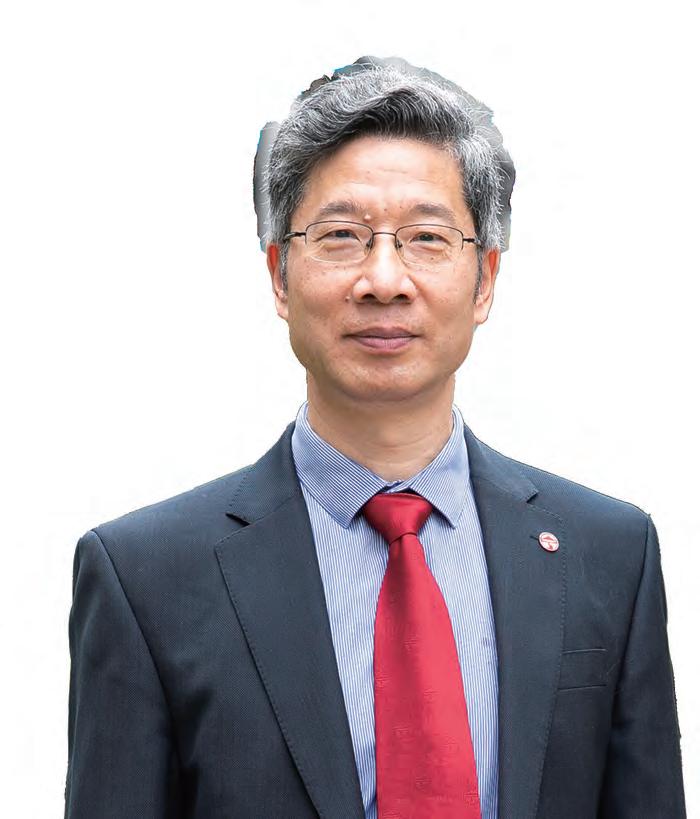
I am very passionate about research because one of its fundamental characteristics is knowledge creation. To educate the next generation to be societal contributors, innovators, and creators of knowledge, we need to engage actively in knowledge creation ourselves.
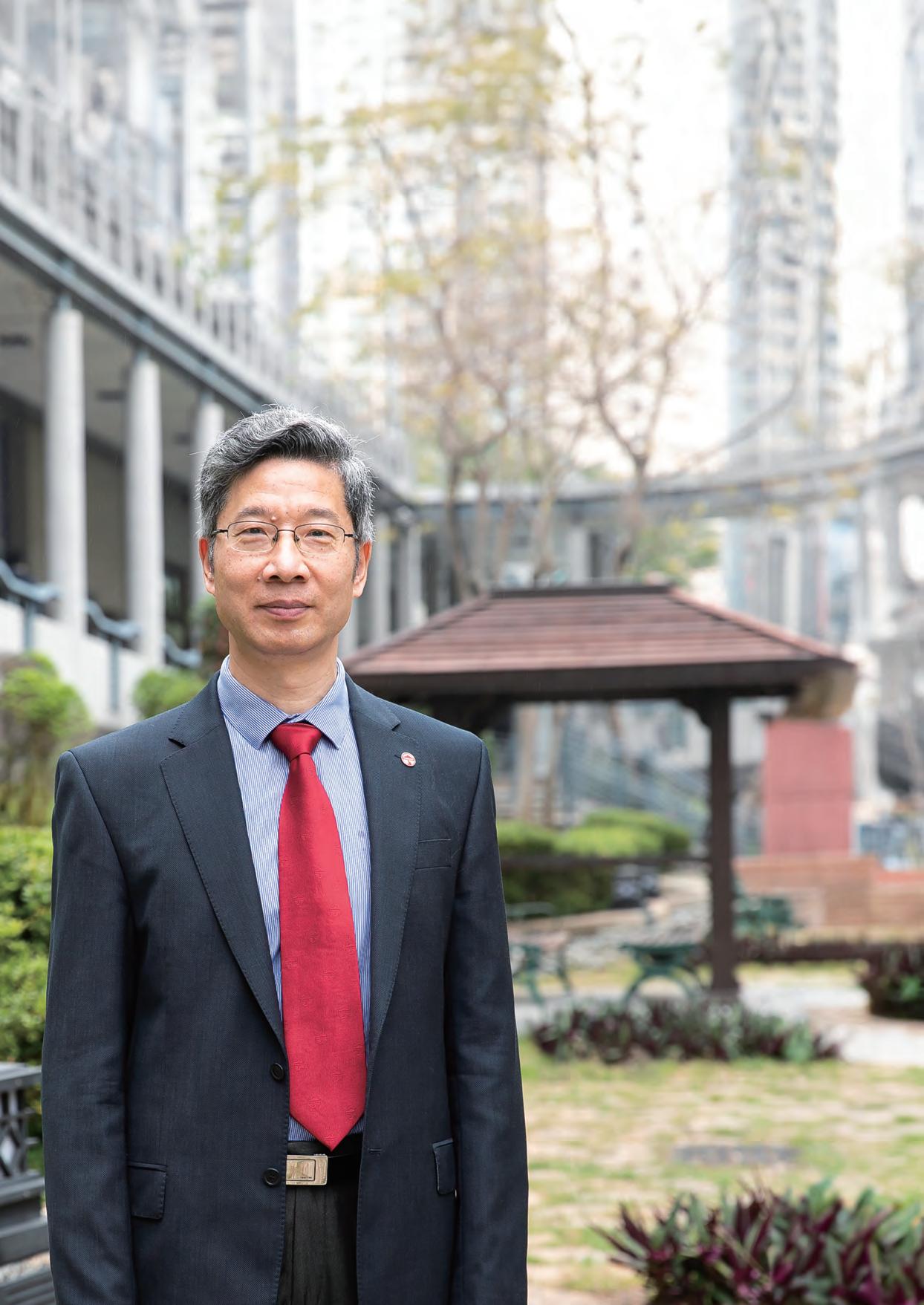
Prof Xin Yao Vice-President (Research and Innovation)
Tong Tin Sun Chair Professor of Machine Learning
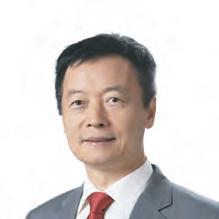
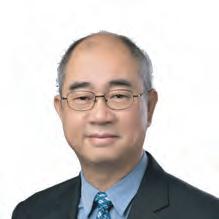
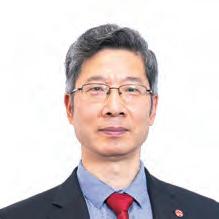
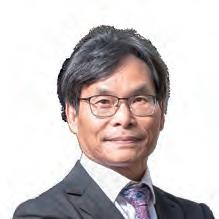
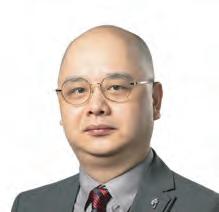
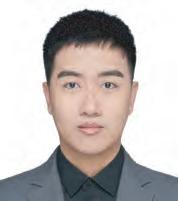

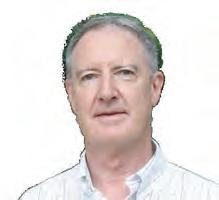

Lingnan University Institute for Advanced Study (LUIAS)
Honorary Director Lingnan Fellows
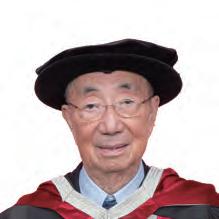

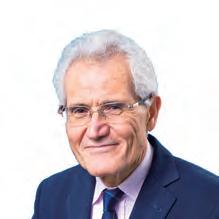
As Lingnan University approaches its 60th anniversary, we have mounted the Lingnan-60 Global Talent Recruitment campaign. Our goal is to engage over 60 outstanding scholars from across the world, focusing on interdisciplinary studies to shape the digitalised future of teaching and research at our university.
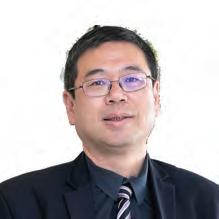



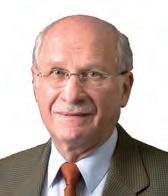

In this Lingnan-60 initiative, we have already welcomed 15 new members of staff, including exceptional senior leaders, which means that 14% of Lingnan scholars are on Stanford’s Top 2% of leading Scientists list worldwide.
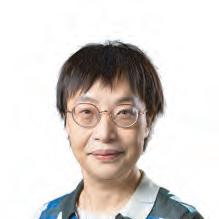
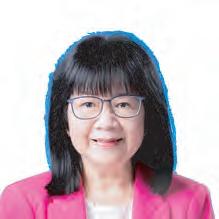
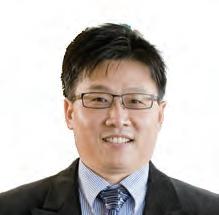
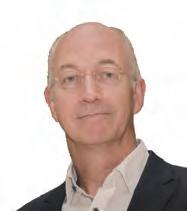


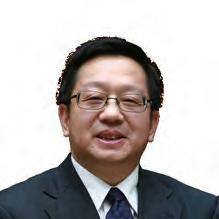
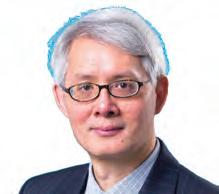
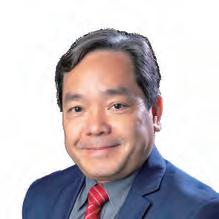
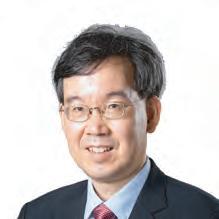
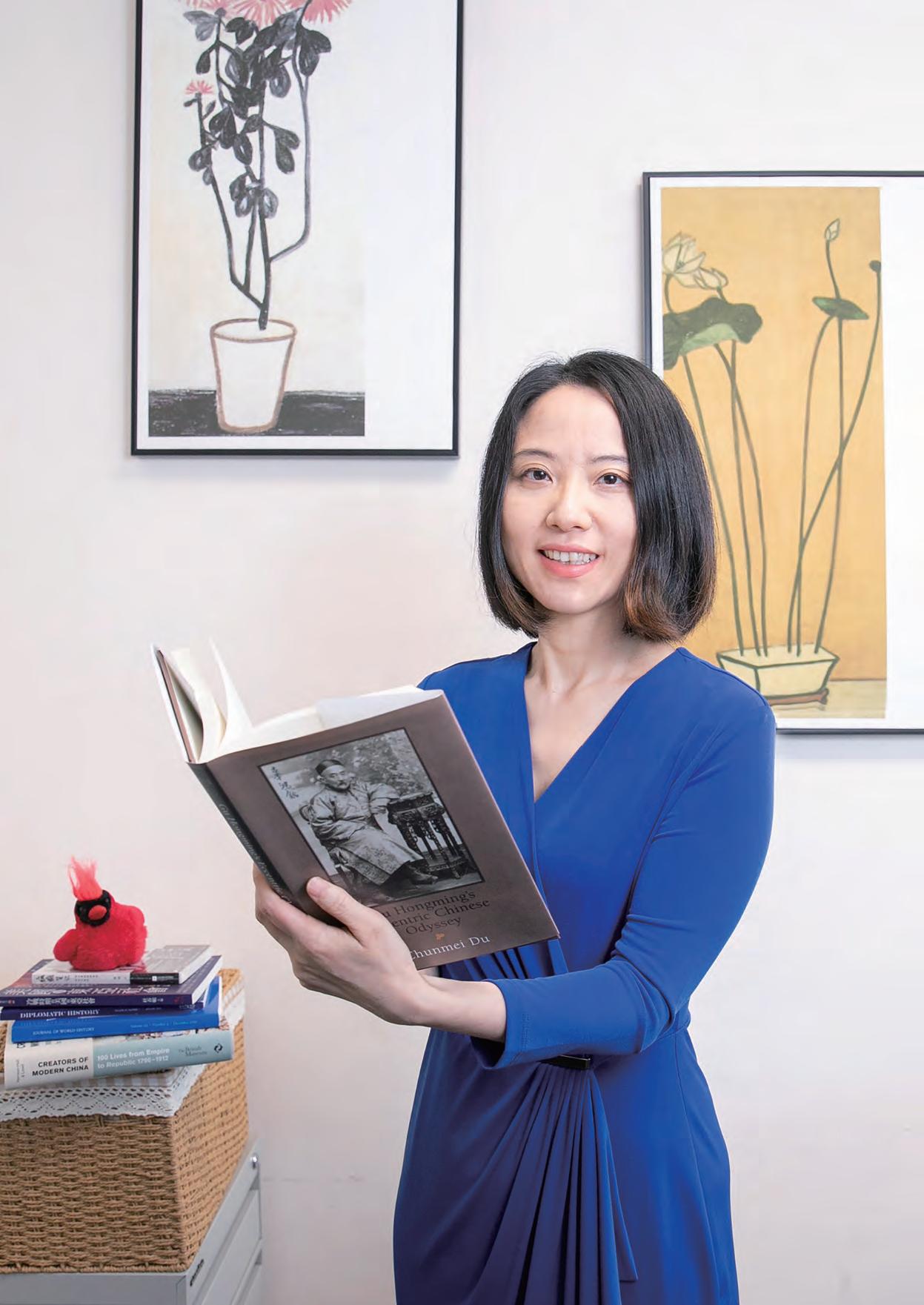
The multidisciplinary historian discusses how her work led to becoming the only Hong Kong recipient of the prestigious fellowship.
Ascholar, psychotherapist, bilingual writer, and dancerthis is how Associate Professor Du Chunmei of the History Department at Lingnan University defines herself on her website. While many people may assume history is all about names, dates, places, and events, Prof Du, an enthusiast, delves deep into people’s lives and relationships.
“As a historian of modern China, I have always been interested in studying human beings as individuals, and curious about what people think, why they think the way they do, and what choices they make,” she says.
In January 2024, Prof Du received a one-year grant from the highly respected National Endowment for the Humanities (NEH), awarded to only eight per cent of all submitted humanities proposals nationwide in the US.
One of only three fellowships outside the US in this submission, Prof Du’s US$60,000 (HK$470,000) grant is for her book, “The Forgotten Occupation: Everyday Encounters between American Soldiers and the Chinese, 1945-1949”, which covers the US occupation of China at the end of World War II.
As a historian of modern China, I have always been interested in studying human beings as individuals, and curious about what people think, why they think the way they do, and what choices they make.
“My book re-examines this critical period in Chinese history by focusing on the everyday worlds, the ordinary citizens, and how they interacted with American soldiers in the war’s aftermath. I treat them, both groups, as kind of informal ambassadors,” she says. She looks at how the US and China parted ways from being Allies during World War II to the socalled “loss of China” in 1949.
Unlike traditional history that focuses on the elites, diplomats, and top leaders, Prof Du’s work takes a closer look at everyday actors, and how grassroots relationships helped to shape political dynamics, as well as the long-term, still evident impact.
The project is the sole Hong Kong winner out of 260 entries awarded US$33.8 million (HK$264 million) in NEH support for museum development, heritage documentaries, conservation and associated training, college and university programmes, and new research and digital advancements in the humanities.
Enthusiastic about the human mind from a historical perspective, she gained a PhD degree in East Asian Studies from Princeton University, and has published on many topics, including Chinese conservatism, ethnic minority identities, anti-Americanism, and American soldiers in China after World War II.
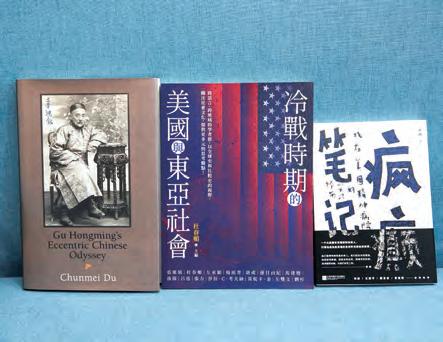
One of her best works, Gu Hongming’s Eccentric Chinese Odyssey, is the first comprehensive study in English of Gu Hongming - both the private individual and the public cultural figure. She examines the controversial scholar intellectually and psychologically across geographical, national, and cultural boundaries in a new global context.
Prof Du’s undergraduate studies were a joint programme of literature, history, and philosophy at the People’s University of China, Beijing. She spent about two years in the history department, and another two in the philosophy department, “so intellectual history is like a natural convergence between philosophy and history, combining my interests in the two fields.”
“That is my first monograph in English based on my PhD dissertation. I traced Gu Hongming’s steps from Southeast Asia, where he grew up in a Chinese diasporic family, to Europe, where he received an excellent Scottish education, and finally back to China in his late 20s, where he metamorphosed from an English-speaking, western-educated colonial figure to a ‘Chinaman again’ with a long queue, and spent the rest of his life translating Confucian writings and explaining Chinese traditions to a western audience.”
What fascinates Prof Du about Gu Hongming, one of the best-known experts and elucidators of Chinese traditions to the early-twentieth century Western world, is that “he presents us with a lens to see what China is, what the East is, what Chinese tradition is, and what Western culture is. Yet, interestingly, his ways of understanding China and Chinese traditions were greatly influenced by his Western learningand a kind of hybrid.”
Prof Du’s insights into human beings are not only in her history books. A National Certified Counsellor of the US, she is also the author of《瘋癲筆記——我在美國精神病院的實習經 歷》(Notes of Insanity: My Experience Working in an American Psychiatric Hospital), which documents the cultural, mental, and social struggle of her 700-hour clinical internship.
“If my academic studies allow me to learn how people think, psychotherapy focuses more on how people feel,” she believes.
It was this fascinating, even life-changing experience that allowed Prof Du to witness many psychiatric patients’ sufferings, to help them in a very direct and personal way, and, most importantly, “to better understand the complexities of human beings including my students.” She also currently serves as the Hostel Warden of Lingnan University The Jockey Club New Hall (G), whose motto is “Holistic well-being”.
“By that I really mean the body, the mind and the emotions; it’s not just their academic studies, but also the growth of our students as human beings - they should be healthy, be happy, be kind, enjoy what they do, and find meanings in life,” Prof Du says, and she hopes students realise they are not alone in this world, “there are many people who will empathise with them and extend the help when they need it.”
Recently, in the classroom, Prof Du has been developing a new course on sensory history, which encourages students to study history from many different aspects. This kind of teaching comes from her enthusiasm for dance, giving her a deeper understanding of the body and the whole experience.
“Most professors spend hours and days writing papers and preparing lessons in the office, but we kind of forget there are other ways of learning, for example, experiential learning,”
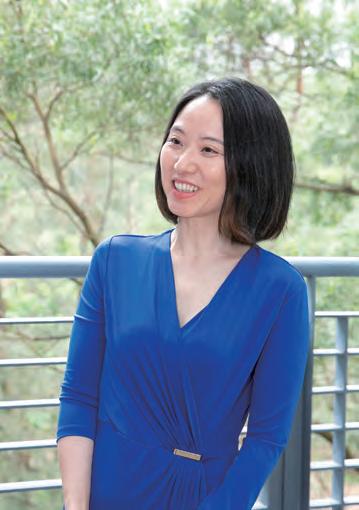
she explains, and with the support of a teaching development grant, she invited a tea expert to hold a tasting for students to “taste” China’s encounters with the outside world.
“Studying history involves not just seeing, but also the less common ways such as hearing, tasting, smelling, and touching. Sensory history is something of a new approach, both in my research and teaching, interpreting sensory experiences and meanings in a historical and cultural context.
“I really like Lingnan students and find them very polite and hardworking. I hope to see them take more initiative. Dream high, work hard, and I am here to help them achieve their dreams,” Prof Du concludes.

Scan to watch the interview highlights
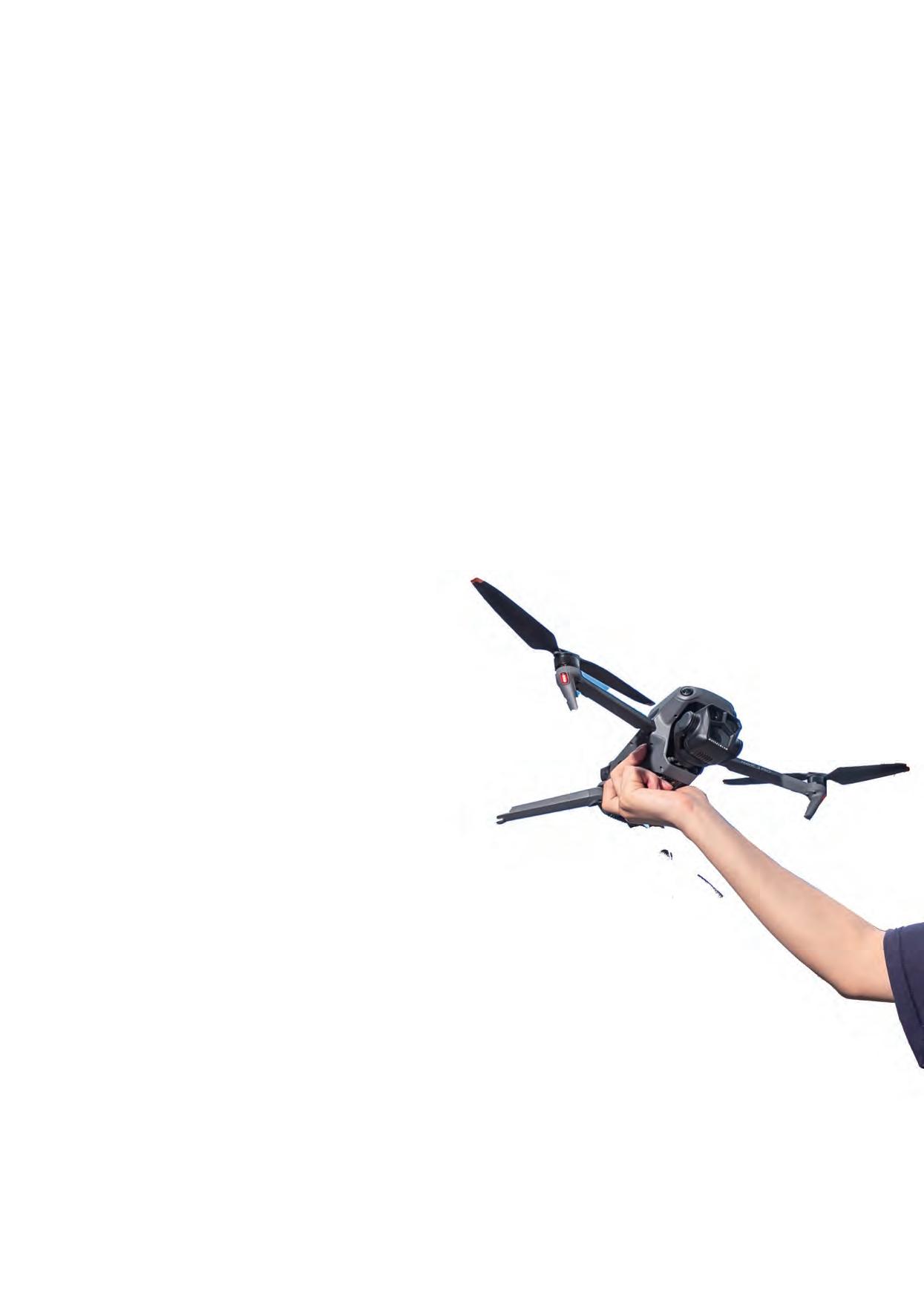
雙手、一架小型無人機,就像擁有多啦A夢的法寶 「竹蜻蜓」一樣,能飛到半空中以全新眼光認識既有世界,以 創作力量和幻想詮釋生活日常。
今年,嶺南大學商學院四年級學生趙陽春(Mike)伙拍 嶺南大學持續進修學院畢業生王振宇,前往北京參加第 八屆「科德盃」全國大學生無人機航拍競賽,與來自北 京大學、清華大學、中央戲劇學院、北京電影學院等近 千名專業藝術創作者一較高下,並以組圖《向陽而生》 榮獲優秀獎,成為全港唯一一支參賽而且得獎的境外高校隊 伍。
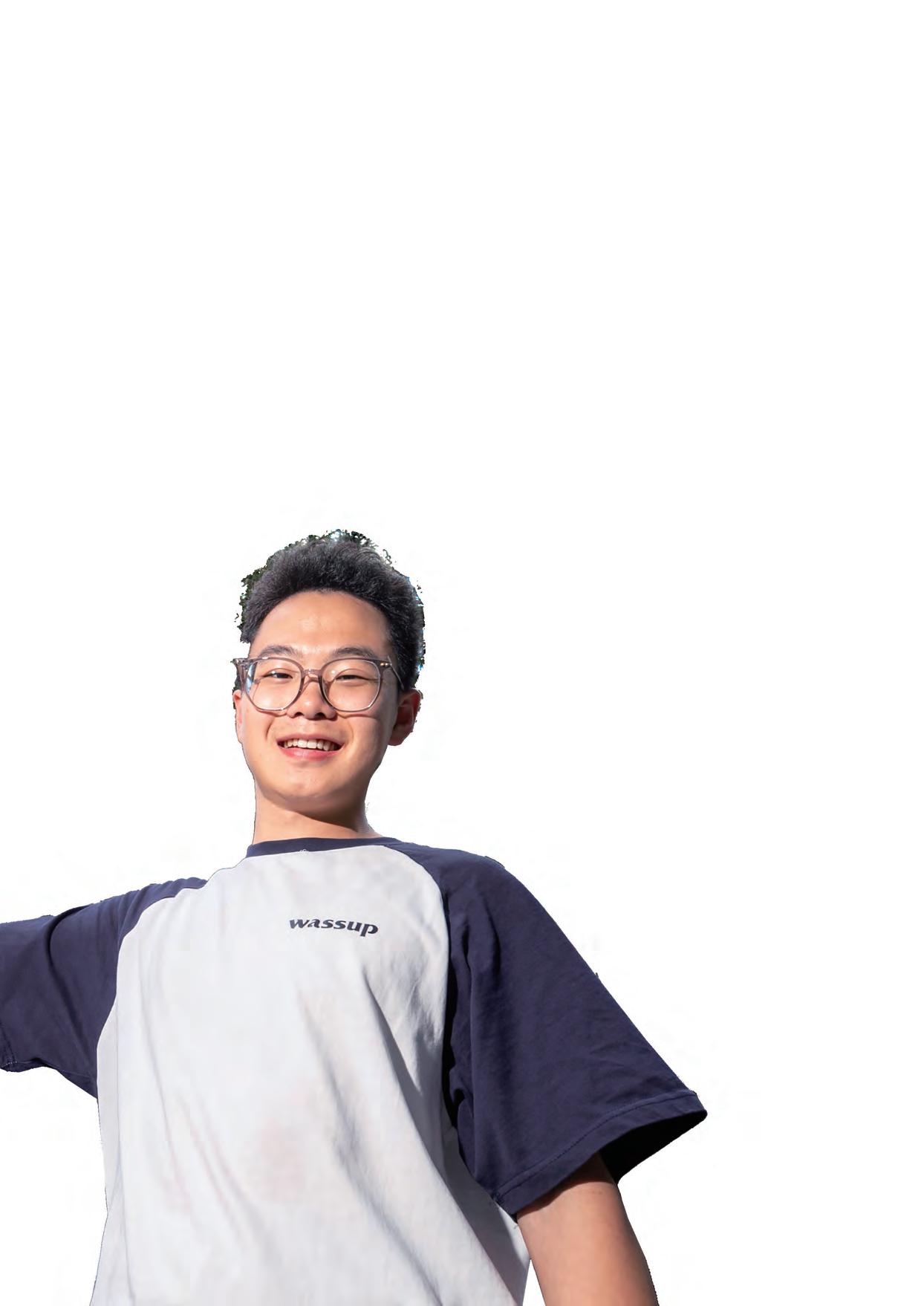
趙陽春
只有好奇它是怎麼實現的,才會去研究它,這樣的話創新精神一直 都會在。
「我們平時拍照,多是直視或側面,你看到甚麼就拍甚麼; 但無人機能在空中提供一個全新視角,讓人也好、物也好, 出現在你可能平時看不到的角度,就是我們所謂的『上帝視 角』:如果你從天上看下來,更能創造一種獨特的畫面張力, 更能打動人心。」Mike說。
Mike從中學畢業後就開始接觸航拍,曾涉獵不同商業拍攝項 目,由在酒店室內泳池進行水上航拍的專業飛手,到控制標 準航拍電影機鏡頭的雲台手,以至於是次賽事中走到幕前、 躺在地上擔當航拍鏡頭下的模特兒,他與無人機的緣分可謂 千絲萬縷。
「無人機是當下的新主流媒體,是一個理想的個人發展的方 向。」他說,並指出國內航拍器材巨頭「大疆」的創始人汪滔 正正就是從香港的大學出身,所以香港可算是無人機技術的 搖籃之一。
香港政府近年大力推動STEAM教育,冀發掘和培育更多具科 學、科技、工程、藝術和數學良好基礎的本地精英,融入未 來發展創科的大方向。對Mike來說,嶺南大學奉行的博雅教 育正好鼓勵學生作多方面的嘗試,在文理雙軌學習中發現更 多不同可能。
「嶺大不會拒絕我們在任何一個方向的嘗試和探索,它在最大 程度上鼓勵我們去創新,哪怕是錯的,因為只有當自己發現 到錯誤的時候,這個失敗的教訓才會刻骨銘心,所以我非常
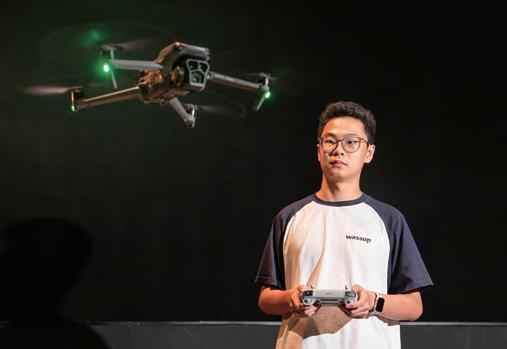
感謝嶺南對我們的教育方式,也給了我們很多機會和平台。」
對Mike而言,投入研究無人航拍技術不只是為了興趣,亦是 緊貼近年國內積極推動發展低空經濟的趨勢,提早洞悉無人機 在現代城市中不同行業的廣泛應用,善用科技把握箇中商機。
「低空經濟是指在垂直高度一千米以內,根據實際需要延伸 至三千米以下空域的有人或無人駕駛低空飛行活動,涵蓋農 業、航拍、救援及運輸等多重領域的新興產業,它包括所有 的上下游產業鏈,所以無人機可能是未來一個井噴式的入 口。」
以物流配送為例,Mike指出國內科企已部署於多幢寫字樓 設置無人機機場,當你在手機上提交訂單,無人機收到指令 後,就會自動飛到你面前把你的包裹送達,然後自己飛回去 重聯,「我認為無人機能非常高度的融入我們的生活」。
除了在其他生活化的場景如樓宇測繪、災區搜救外,他提到 航拍技術更可能會對整個影像創作行業產生重大的革新,因 為無人機已經可以完全代替拍攝電影時常用的搖臂、索道, 在操作上更見靈活;而且,無人機早於三、四年前已早著先 機,運用了人工智能的算法,提升對焦、色彩處理、圖像解 析度等技術。
Mike認為,年輕人應該對一切首先要保持好奇心,事事都 要問為甚麼——只有好奇它是怎麼實現的,才會去研究它, 這樣的話創新精神一直都會在。正如想要推動無人機技術發 展,先要足夠了解無人機如何操作,知道技術能如何應用到 日常生活上不同層面。
「我希望能夠在嶺大凝聚更多對航拍有興趣的同學,籌組一支 也包含演員、工作人員的團隊,那就可以拍攝劇情短片,有 機會在明年衝一衝『科德盃』大獎。如果有更多的人會使用和 操縱無人設備,將能極大的推動香港對於無人機產業發展的 人才儲備。
「而我的夢想是做一個世界公民,在這個世界上到處拍,看遍 這個世界的所有美景。未來,也許我可以在嶺南這個美麗的 校園用無人機捕捉每個人的笑臉,呈現出這裡最包容、最開 放、最多元的教育環境。」
趙陽春與王振宇的得獎組圖以《向陽而生》為題,透過無人航拍機獨特的俯瞰角度,創作出2D平面視錯覺影像,展現了作 為當代青年人積極向上、力求創新的活力。
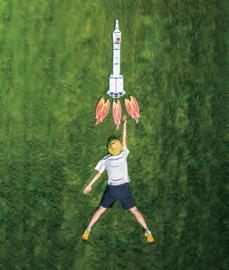








1.《力量》:我們推動著火箭,給予這個社會進步的力量。
2.《奔湧》:在熙攘的社會中,面對未知的前方,路在腳下,不改其樂。
3.《生活》:生活或許時常苦澀,但請給予自己些許愜意的權利。
4.《熱愛》:熱愛帶來的附屬,是一筆筆環環相扣的寶藏。
5.《求真》:透過大天文望遠鏡探索書中記載的星空,我們同時追求實踐與經驗。
6.《志向》:確立人生方向,只需要堅定的一步一步登高。
7.《我們》:前輩們拉扯著我們攀登陡峭的懸崖,我們也努力去肩負更多的責任與使命。
8.《擁抱》:擁抱星星,同時也擁抱著對星際外整個世界的暢想。
9.《燎原》:火光、星光燃點新的希望。 Photos courtesy: Han Junhai, Zhao Yangchun
盼以科技傳承經史智慧

Text: Whitney Hon Photos: Hazel Chow
我有幸閱讀前人孜孜不倦所載的智
慧和創見,除了欽佩,更望日後以 一個更直白、更有趣的方式,把他 們的智慧結晶傳承下去。
拓展人脈,亦積極推動香 港文學,鼓勵年輕作者互相交流。今年暑假, 她更透過嶺大的暑期實習計劃,到大灣區的科 創公司實習,跳出文藝圈,闖入商界挑戰自我。讓慧敏確立未來路向的契機,原來全因到北京 大學交流。當時冬日嚴寒的天氣,全擋不住她 對古籍研究的熱忱
「能夠到北大交流令 人心動,機會難能可貴,既體驗不一樣的城市 風貌,又加深對古籍研究的認識。」她表示, 北大學術氛圍濃厚,有關文獻學的課程尤為深
「清人臧庸謂治經無他良方:一曰勤奮,二曰細 心」。所謂學無止境,她非常善用在學時間,除了參加嶺南大學演講會
說大學生必做四件事:「上莊、住宿、交流、實習」,她在四年內一件不落。她是侯慧敏,嶺南大學中文系 一級榮譽畢業生。不但先後獲頒友邦獎學金、 滙豐粵港澳大灣區(香港)獎學金等,她更於本 年度榮獲尤德爵士紀念基金本科生獎學金,成為全港僅六位得主之一。 談及座右銘,慧敏自言學傚於清學者臧庸
慧敏笑指自己從小「偏科」,是個標準的文科 生。她慶幸嶺大平日提供不少文理融合的跨學 科課程和活動,讓她增益不少。「怎樣利用人 工智能,令我們的研究更方便及更具多樣性, 是應該思考的方向。從著名漢學家柯馬丁教授
入。初學時雖感到吃力,但她深信潛心鑽研, 才能理解艱澀難明的古籍,提煉精粹。在萬重困難之中,她找到無比樂趣。
(Martin Kern) 的研究所見,其實西方已經追逐 著這個科技大潮流,所以我們也不能落後。」自幼受任教中文的母親薰陶,伴着嶺大溫暖的 師生關係,她的教育夢徐徐冒起。道阻且長, 行則將至,「趁著年輕,趁我還有衝勁和抱 負,先踏出一步,我想看看自己走得多遠!」學術路漫漫,慧敏坦言未敢定論日後的成就。 在她眼中,歷盡千年的古籍,無疑是我們的文 化瑰寶。她正在嶺大修讀中文哲學碩士課程, 聚焦經史研究範疇,希望通過不懈的努力,實 踐「勤以治學、學以解惑;以己綿力,造福社 會」的目標。

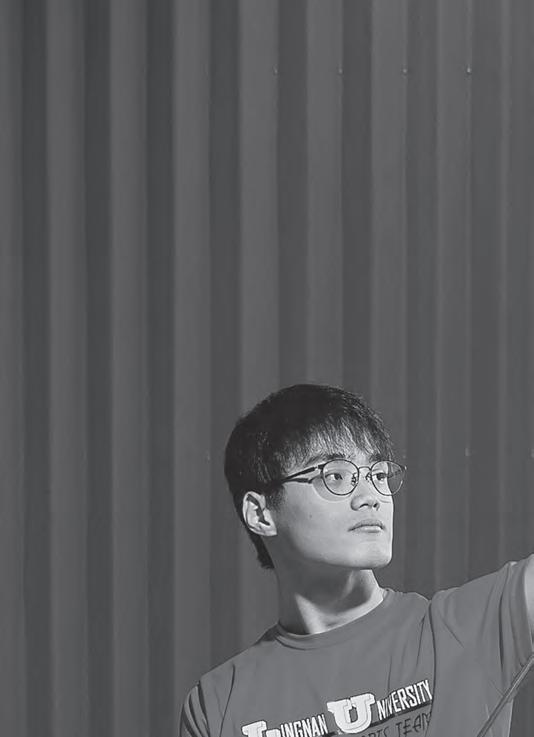


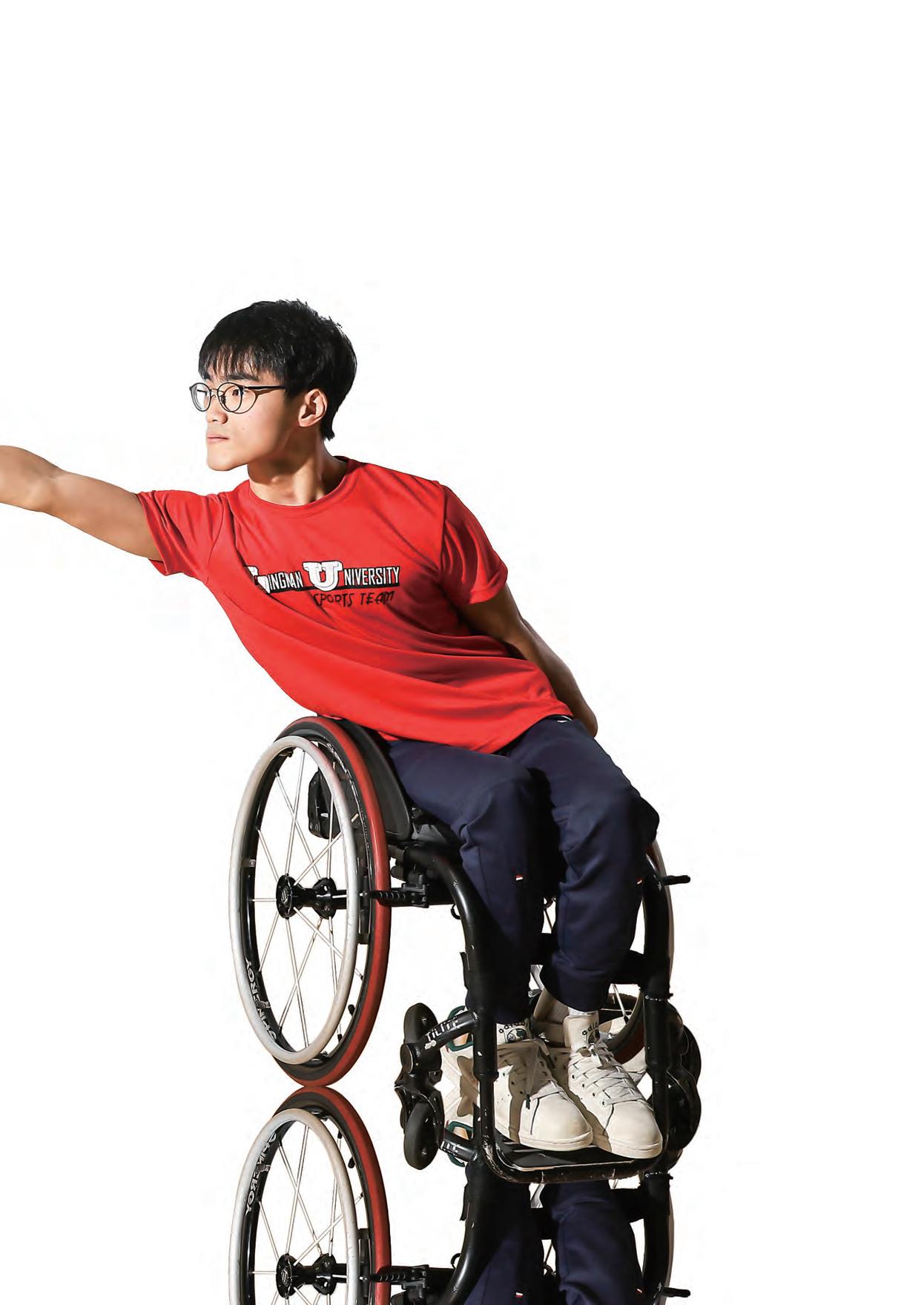
這位於中國香港傷殘人士體育協會FILA 2022傑出運動員選 舉獲選為「全年最佳男青少年運動員」的二年級生,在嶺大提 供的學習支援下,應付密集的運動訓練的同時,努力兼顧學 業,享受大學的校園生活。
在12歲那年首次在學校的課外活動中接觸輪椅劍擊,朗浩 其後獲推薦進入香港體育學院(體院)接受培訓,參戰國際大 賽,並成功獲得多個獎牌,當中包括2019年於阿聯酋沙迦舉 辦的IWAS 世界運動會的輪椅劍擊U17男子重劍個人賽銅牌, 及2022年於巴西聖保羅舉行的IWAS輪椅劍擊U23世界錦標 賽男子A級及B級重劍個人賽銀牌。
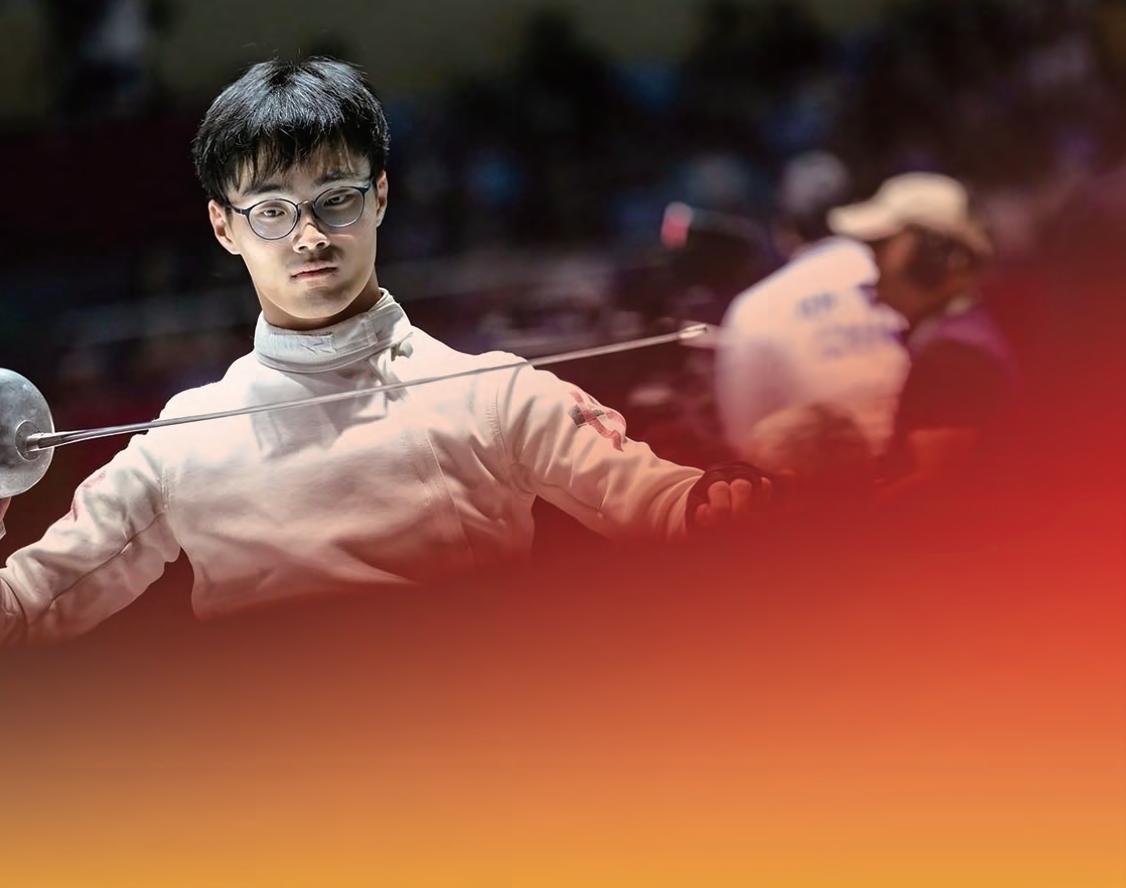
由中學時代開始,朗浩的日程已被上學和訓練塞得滿滿,過 著每天只有約五小時睡眠的非人生活。進入大學後,朗浩將 練習集中在沒有課堂的日子。他說:「剛開學的日子還算是比 較輕鬆的,但當比賽日子來臨就開始沒那麼輕鬆了。比賽前 練習量會加強,比賽期間要到外地,回來馬上要趕回學習進 度,有時候的確會感到有點難應付。」
幸好每當朗浩要到外地參加比賽,嶺大學生事務處便會與課 程及老師協調,為他安排課堂錄影,又會在選修科目上給予 彈性。「我比賽回來便觀看錄影課堂來學習,雖然及不上實體 課時專心,但已幫助很大,讓我能學習到所需的知識。」朗浩 說。
在運動員的生涯當中,去年10月於杭州舉辦的「亞洲殘疾人 運動會」教朗浩最為難忘:「第一次參加那麼大型的比賽,真 的很開心,見證著自己多年努力後終於去到這舞台,算是一 個成就解鎖。」在這次比賽參戰重劍、花劍個人及團體A級項 目的朗浩,雖然最終未能成功爭取獎牌,但他對自己首次參 與亞殘運的表現感到滿意,特別是在團體賽,坦言自己已盡 了力。
無論做甚麼也好,要不快點斬纜,不要浪費時間,要不就堅持下 去,結果可能在很久之後才出現,但也要繼續堅持。
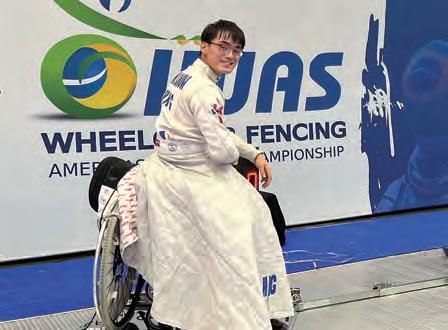
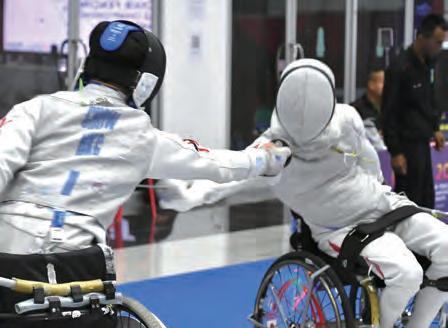
年紀輕輕的朗浩身經百戰,曾多次代表香港出賽。
Photos courtesy: Chow Long-ho
「做任何事情也別只看眼前的利益。當初玩劍擊,只因感到好 玩,並沒有想過自己有這樣的成績,亦沒想過可以因為打劍 而進入大學。無論做甚麼也好,要不快點斬纜,不要浪費時 間,要不就堅持下去,結果可能在很久之後才出現,但也要 繼續堅持。」
未來,除了繼續在運動上爭取佳績外,他希望能有機會參與 嶺大舉辦的交流計劃:「我很想試試不同的東西,例如到日本 交流。但現時還是要忙於訓練,大概要等將來有時間才可實 行。」
交流計劃大概要點時間才能安排,但大學的宿舍生活亦是一 個新體驗。在上課和訓練過後,朗浩會不時與其他宿生一起 打邊爐、玩桌上遊戲等,放鬆一下。面對全新的學習和生活 環境,他並期望能透過這四年在嶺大的大學生涯,發掘自己 在運動以外的興趣和未來的發展方向,為將來結束運動員生 涯時作更佳準備。
為表揚及協助具備體育潛質的學生升學及發展所長,嶺南大 學在大學教育資助委員會的資助下設立了「頂尖運動員直接入 學計劃」(DESTA)。朗浩正是透過此計劃入學。學習以外,嶺 大亦會為「頂尖運動員直接入學計劃」的學生運動員提供恆常 的物理治療服務,讓他們於訓練後舒緩高強度訓練後的肌肉 和肌腱,幫助提升運動表現。 █
在嶺大玩體育的人,沒有人不認識運動癡莫鑑明博士 (Kam Ming) 。在擔任跨學科學院高級講 師,並主力任教運動教練學及盛事管理課程前,Kam Ming 是學生事務處一級助理經理 ( 體育 ), 負責體育運動課程、校隊管理及訓練和活動事務。
不說不知:他曾是香港跆拳道集訓隊成 員、中大新亞書院全能運動員,亦是美 國認可體適能專家、跆拳道註冊裁判及 足球球證、運動科學 ( 創傷 ) 的研究專 家及中國香港運動醫學及科學學會副會 長;他在挪威取得運動科學的博士學 位﹐而他在大學主修的卻是自動化與計 算機輔助工程;即使去年開始全職教書 及做研究,他亦繼續參與學生活動,搞 活動,甚至周末周日也在工作。
一切,源於「跆拳道」。
我思故我勁
我應該是十歲開始學習跆拳道。那時想 找一些課外活動,媽媽便說樓下青少年 中心有跆拳道學,我就是這樣學起來。
跆拳道對我的人生有很大的影響。它令 我有目標,不斷考取不同色帶,還有很 多不同的動作讓我不斷鑽研。我會問, 為甚麼師兄師弟做到的我做不到 ? 在技 術上面,對於「為甚麼」這個字開始有
些體會。及後在大學入選集訓隊期間, 我了解到最高水平的運動不是靠「死練 爛練」的;中間有很多分析、動作分拆 的訓練以及一些體能方面的訓練,或 者戰術。單靠按 時訓練,一定 做不到一個 出色的選手, 最多只是做一個 合格的選手而已。
這出於對跆拳道的思考,對如何能不斷 提升自我的追求,大大影響了我往後的 學業及工作。
我在香港中文大學主修自動化與計算 機輔助工程學 ( 現稱機械與自動化工程 學 ),專門做一些系統的優化,利用電 腦技術去做模擬 (simulation) 的東西。
及後因為熱愛運動的關係,我便將兩者 結合,副修體育運動科學,並在完成學 位課程後,入讀中大醫學院矯形外科及

創傷學系哲學碩士研究生課程,主攻運 動創傷 。我最後在挪威奧斯陸運動創 傷研究中心完成哲學博士,主要研究 膝蓋
前十字韌帶 的受傷機制,當中也用了 很多工程方面的技術。
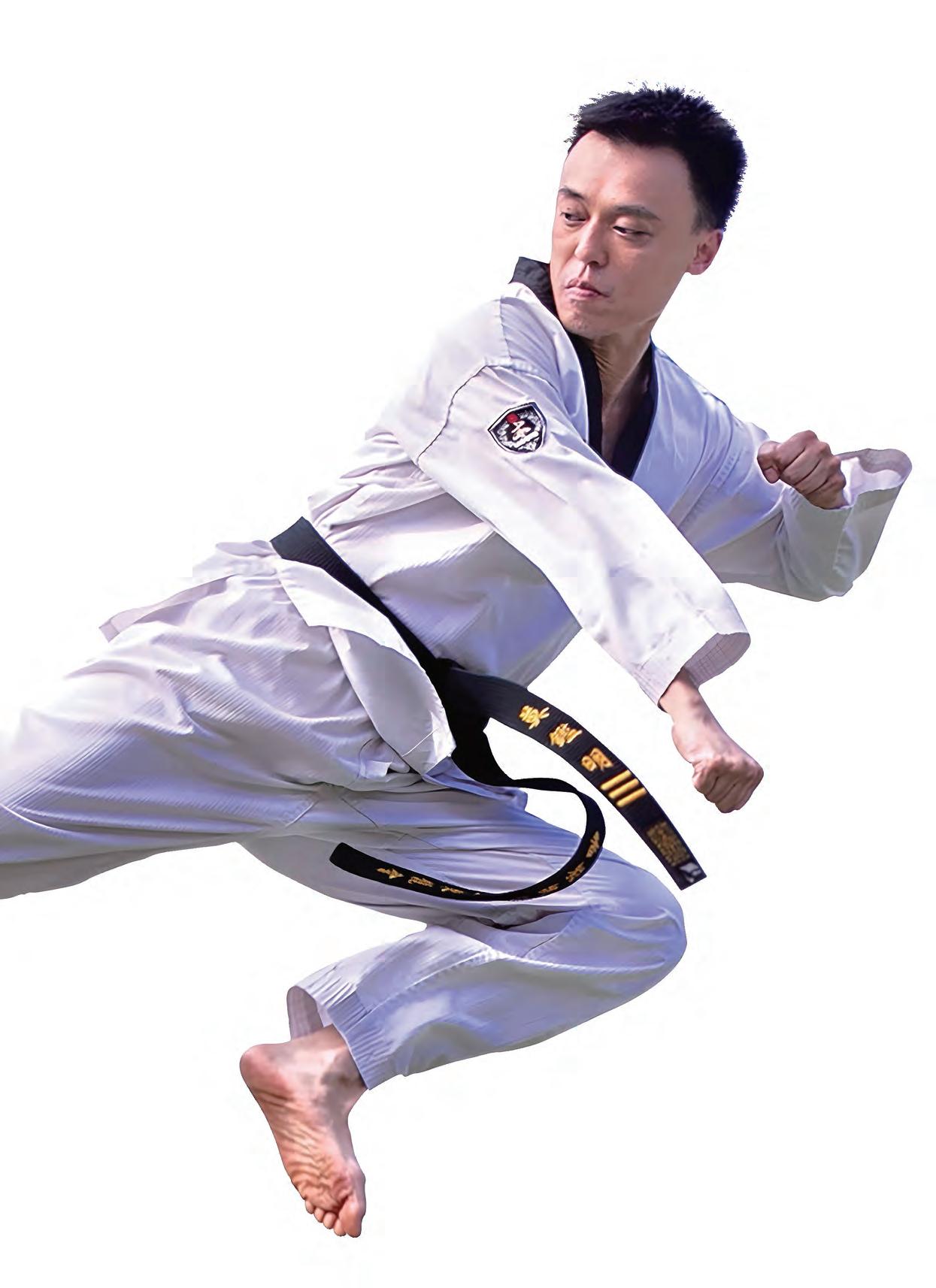
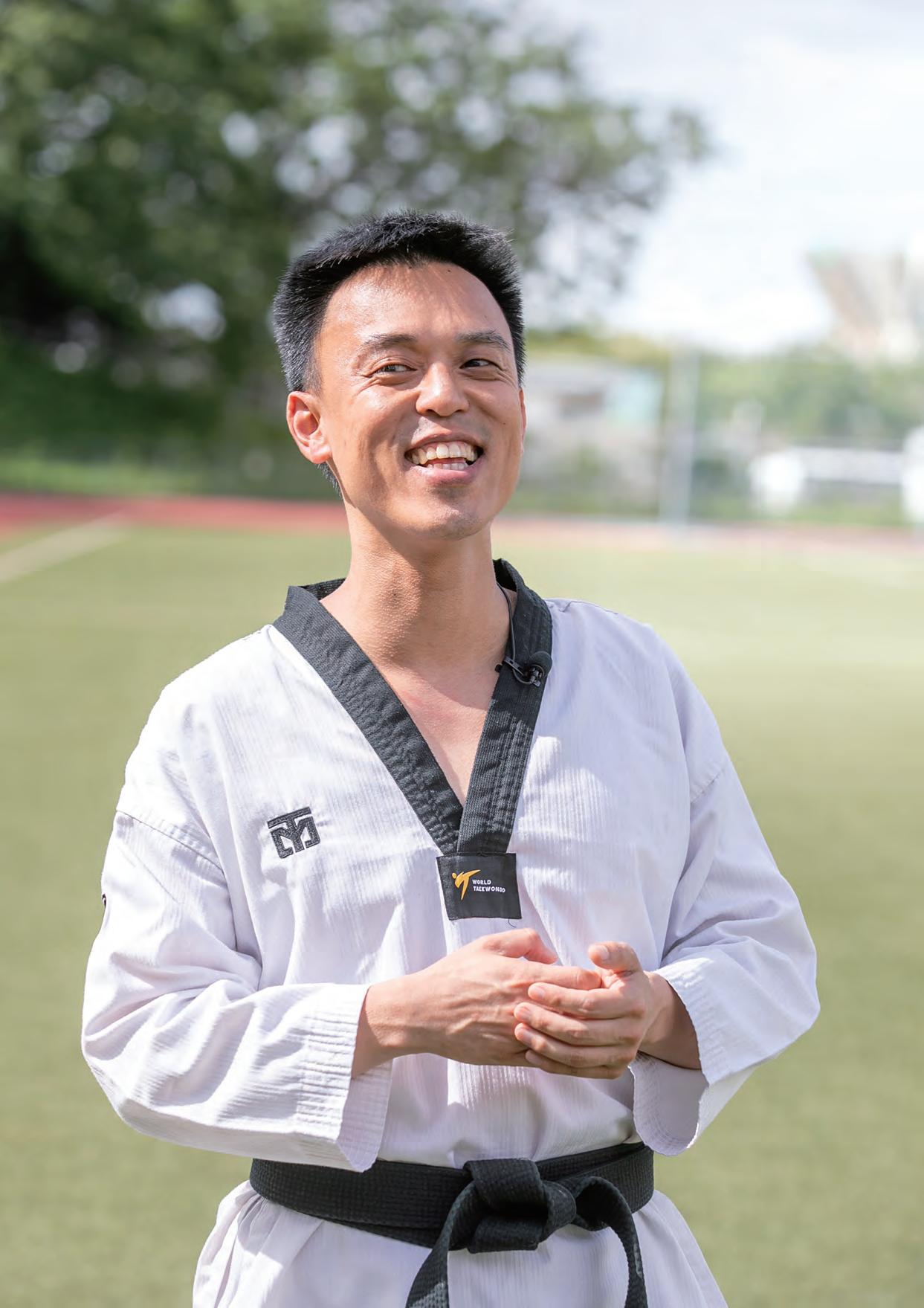
每一場比賽一定有 輸有贏,過去已逝, 未來是謎,把握現 在,盡力而為。
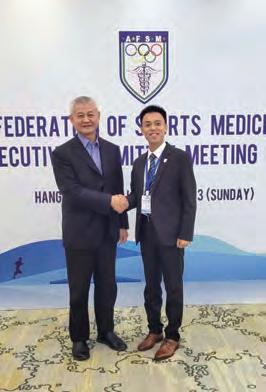
Kam Ming(右)與亞洲運動醫學聯 合會主席謝敏豪教授(左)合照。
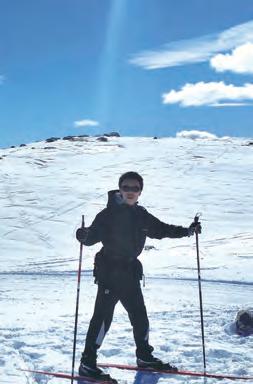
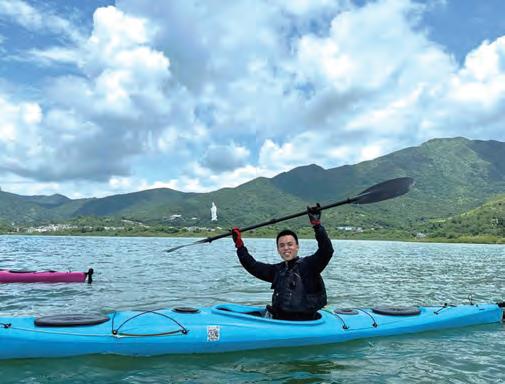
除了跆拳道外,熱愛運動的Kam Ming還喜歡滑雪及划獨木舟等活動。
為何選擇挪威
挪威奧斯陸運動創傷研究中心是當時國 際奧委會四間研究中心的其中一間,以 圖像分析實質受傷而聞名。它透過一些 如電腦影像分析的方法及技術,了解賽 場上受傷運動員當時的身體狀況,如關 節的角度,並有效模擬韌帶在受傷時所 承受的拉力。這些資訊是非常珍貴的, 因為我們不能叫運動員來到實驗室告訴 我們怎樣受傷,更不能讓他在我們面前 受傷。當時奧斯陸運動創傷研究中心就 有方法去分析在電視上播放的片段,而 我亦參與了部分 2008 年北京奧運片段 的研究工作。
從研究到學生事務再教書 2015 年完成博士學位後,我回到中大 醫學院做運動創傷的研究。那段時間我 不斷思考:我們接觸到的多數是精英運 動員,但是大專運動員的訓練量絕對不 比他們低,他們所受到的運動創傷的威 脅,絕對不比他們小,但是這一班人, 我其實了解不深。所以在完成合約後, 我毅然加入了嶺大學生服務中心 ( 現學 生事務處 ),及後開始管理一些校隊及 體育課程,從中看看可不可以在減低他 們運動創傷風險的同時,又可以提升他 們的運動表現。
我發覺大專校隊普遍缺乏科學訓練法, 這驅使我開辦不同的綜合學習課程 (ILP),並在校隊裡舉辦預防運動創傷的 工作坊,這些在最近幾年都漸漸成形。 我們亦開展了一些運動創傷的服務。
自嶺大成立跨學科學院後,增加了一個 運動教練學及盛事管理課程。我很感恩 有機會可以轉到學院任教,也可以重回 研究的工作。這是嶺大給我很多不同的 機會之一。
推行運動醫學在社區
我是美國認可體適能專家,亦是中國香 港運動醫學及科學學會副會長,近年主 力推行運動醫學在社區。運動醫學這件 事是屬於大家的,而非局限於醫生、物 理治療師,或是醫療人員才有資格去 做。只要接受適當訓練,每一位都可幫 忙以防止運動創傷的發生。
這個概念在香港推行了大概十年,而在 部分國家如澳洲、美國,它早於 20 年前 已被推廣,而中國內地則有運動防護師 專業。原因是它們地大物博,如果在社 區出現一些非緊急的情況 - 如在足球場 上扭傷 - 很多時候都沒有人會即時處理 及制定復康計劃。但是這些創傷慢慢會 變成傷患,甚至不能完全自我康復。故 此,運動創傷防護員在社區就肩負起很 大責任。最近我們成立了香港運動防護 師總會,就是為加強推廣力度。
而在嶺大運動教練學及盛事管理課程 裡,我們會安排同學到不同社區單位實 習,希望他們可以為防止運動創傷盡一 分力,提升香港市民的健康質素,建 立健康人生,以履行我們 Education for Service ( 作育英才,服務社會 ) 的校訓。
父母運動經歷道出兒童運動心理 記得我在第一次跆拳道比賽,就拿了個 「豬肉獎」回家。爸爸就說:「你是不是 我親生的 ?」為甚麼呢 ? 他說他在中學第 一次跑長跑是跑全級最後的,自此就不 再玩運動,認為自己不是體育的材料。 這也讓我了解到,其實小朋友喜不喜歡 做運動,跟他們的運動經歷是很有關係 的。我爸爸那時候未必是跑得慢,只不 過可能是他不懂得如何跑。
我媽媽則是個運動健將,自小便代表學 校參加跑步比賽。她說那時跑完步會有 奶粉送,之後可以拿奶粉回家跟家人分 享——這就是運動心理學說的「動力」 (motivation)。怎樣去構建一個良好正面 的運動環境,對運動員及小朋友來說, 其實是很重要的。
兩個研究項目進行中
一個就是利用跆拳道和音樂幫助一些有 自閉症傾向的小朋友,提升他們的社交 能力和身體質素,這項目和香港理工大 學合作。第二是和香港教育大學合作的 項目,利用平衡車分析為何部分人士不 懂踩單車的原因:是因為訓練方法不 對,還是他們本身的動作技能 (motor skills) 差?我們以平衡車著墨去探討箇 中原因及關係。
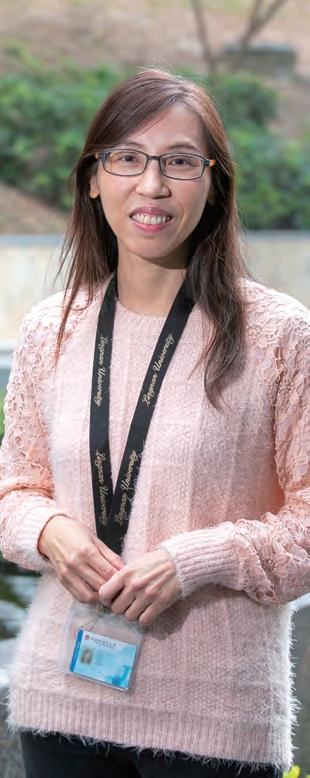
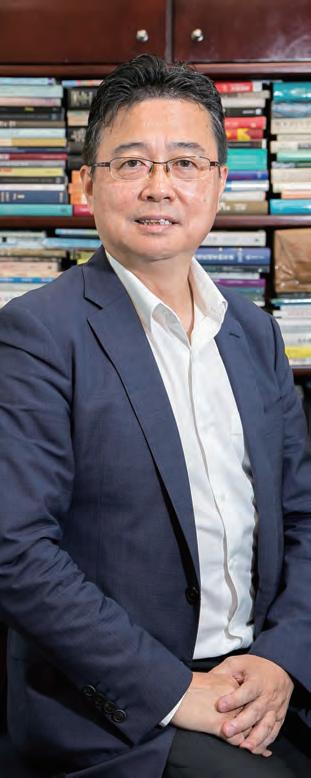
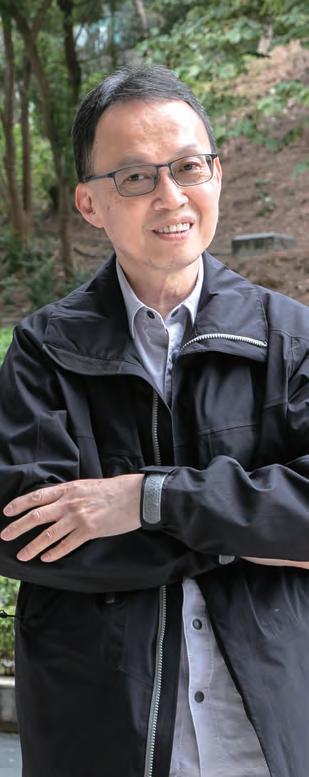
自嶺南大學(嶺大)於1888年創立,到1967年於香港復校成立嶺 南書院(嶺南),至1995年從司徒拔道遷址現時屯門校舍、1999
年正式升格為大學,我們創下一個又一個里程碑的背後,多得一 班默默耕耘多年的教職員,長期為院校和學生服務。
Text: Sze
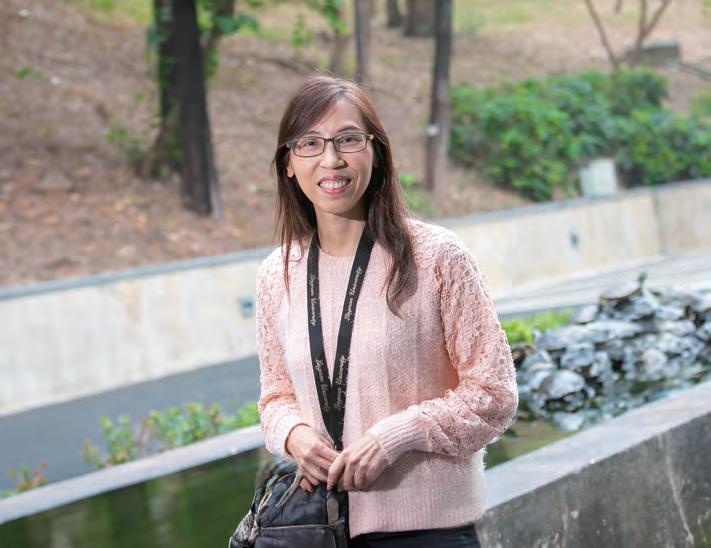
羅小娟 Connie
入職三十年的教務處助理羅小娟(Connie)與嶺大一起經歷過 種種改變,對大學的無數成就與有榮焉。年少時嚮往在大學 工作的Connie,笑言她還清晰記得當年於嶺南面試的緊張心 情。順利入職後不久,第一大轉變就是校園大遷移。她憶述: 「搬進來新校舍時,看到校園又大又漂亮,真的很高興。」
主要負責非聯招入學申請的Connie,其工作亦隨著時代而改 變,她回想起以往學生填寫實體申請表的日子:「以前我們需 要印很多申請表,每年都要推車把大疊大疊的申請表交予部 門審批。近年轉為網上申請,真的方便多了。」去年Connie 加入了收生團隊,見證嶺大推出的「嶺大元宇宙2.0」成為全 港首間以虛擬實境校園招生的高等院校,這亦讓她初次接觸 元宇宙。
嶺大不斷擴展,作為當中一員,Connie感到自豪。 她指在 她入職時,教務處只有10位同事,現已增至30多人。她說: 「一路見證新的學院、部門成立,還有開辦的課程也越來越多 元化和吸引,便覺得我們大學博雅教育的特色真的越來越濃 厚。」
一路見證新的學院、部 門成立,還有開辦的課 程也越來越多元化和吸 引,便覺得我們大學博 雅教育的特色真的越來 越濃厚。

劉智鵬 教授
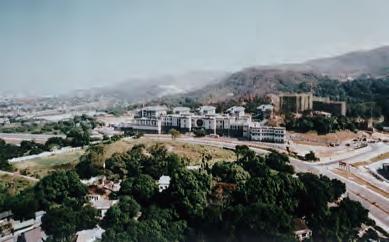
協理副校長(大學拓展及對外事務)暨大學發展及公共事務 處處長及歷史系教授劉智鵬教授,亦不經不覺在嶺大任教滿 三十載。於香港大學修畢文學士及哲學碩士學位,及於西雅 圖華盛頓大學取得哲學博士學位後,劉教授便加入嶺大,展 開其全職大學工作,擔任通識教育課程助理講師。
1999年大學正名後開始推動博雅教育,學院和編制亦隨之 有所變動,劉教授繼而轉往哲學系,隨後創立了歷史系,在 2002年錄取第一批學生。教學以外,劉教授更兼任學生宿舍 舍監,經歷過設於寶龍軍營(Perowne Camp,又名掃管軍 營)的臨時學生宿舍的日子、參與將宿舍搬至現校舍。
對於不同年代的嶺大學生,劉教授感受甚深。他指出相對以 往,近十年的學生較靜、學習態度較被動。他回想:「最初嶺 南還沒變成大學時,我們不是跟大學聯招收生的,學生們甚 麼人都有、甚麼背景都有。那個年代,上課很精彩,不同背 景的學生參與討論的時候,那個角度、處理問題的方式、問 的問題都很特別、很有趣。」
回顧這數十年的教學生涯,劉教授感激家人的支持,讓他可 專心研究香港歷史,並在教學以外參與多項公職,如立法會 議員、區議員、多個政府委員會等。他說參與公共事務能服 務社會,同時獲取很多書本上無法得到的知識,「當然亦建立 了一個社會網絡,這有助於我今日在嶺大所做的大學拓展及 對外關係工作。」
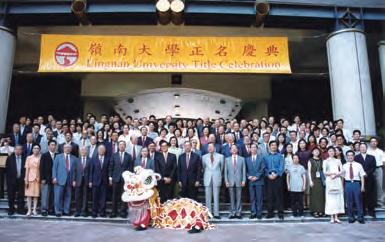

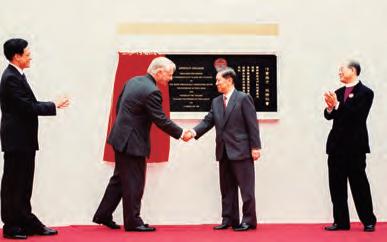
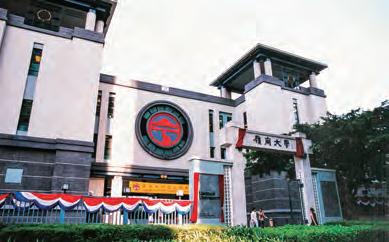
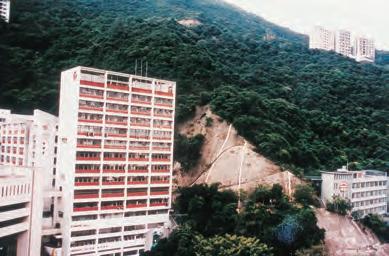
而對於已在嶺大服務了40個年頭的財務處助理巢漢倫 (Raymond)而言,嶺大猶如他的家,共事多年的同事猶如他 的家人。他說:「由我入職、結婚、女兒出世到她現在畢業, 他們都很清楚。這個地方帶給我很多東西,我是跟嶺大一起 成長的。」
於19歲那年加入嶺南,由信差做起,Raymond現於財務處負 責文書、文具採購等工作。今年Raymond除了獲嶺大頒發40 年長期服務獎外,更適逢女兒大學畢業,以及他和太太結婚 30周年紀念,別具意義。
回望過去40載,校舍搬遷最教他難忘,他回憶:「當時工程 持續了很久,當它還是地盤時我有來過,平頂時也有來。學 校建成後還沒正式搬進來之前,我是第一批進來幫忙的,當 時甚麼都沒有。」
他說已把嶺大當家,不捨得離開,「這裡有一班好同事、有一 個很好的制度,還有很多人和事都值得回憶,使我一直覺得 沒有任何令我想離開的原因。我自己有個願望,就是可以做 到45年。」
除了希望自己能在這裡服務至退休,他亦希望嶺大的國際 地位能繼續提升,將來能有一個更大的校園,配合未來的發 展。 █ 巢漢倫 Raymond
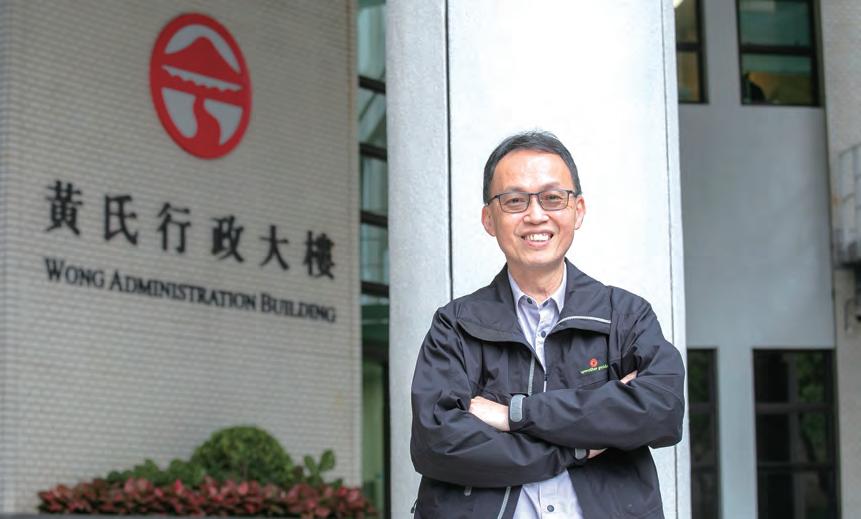
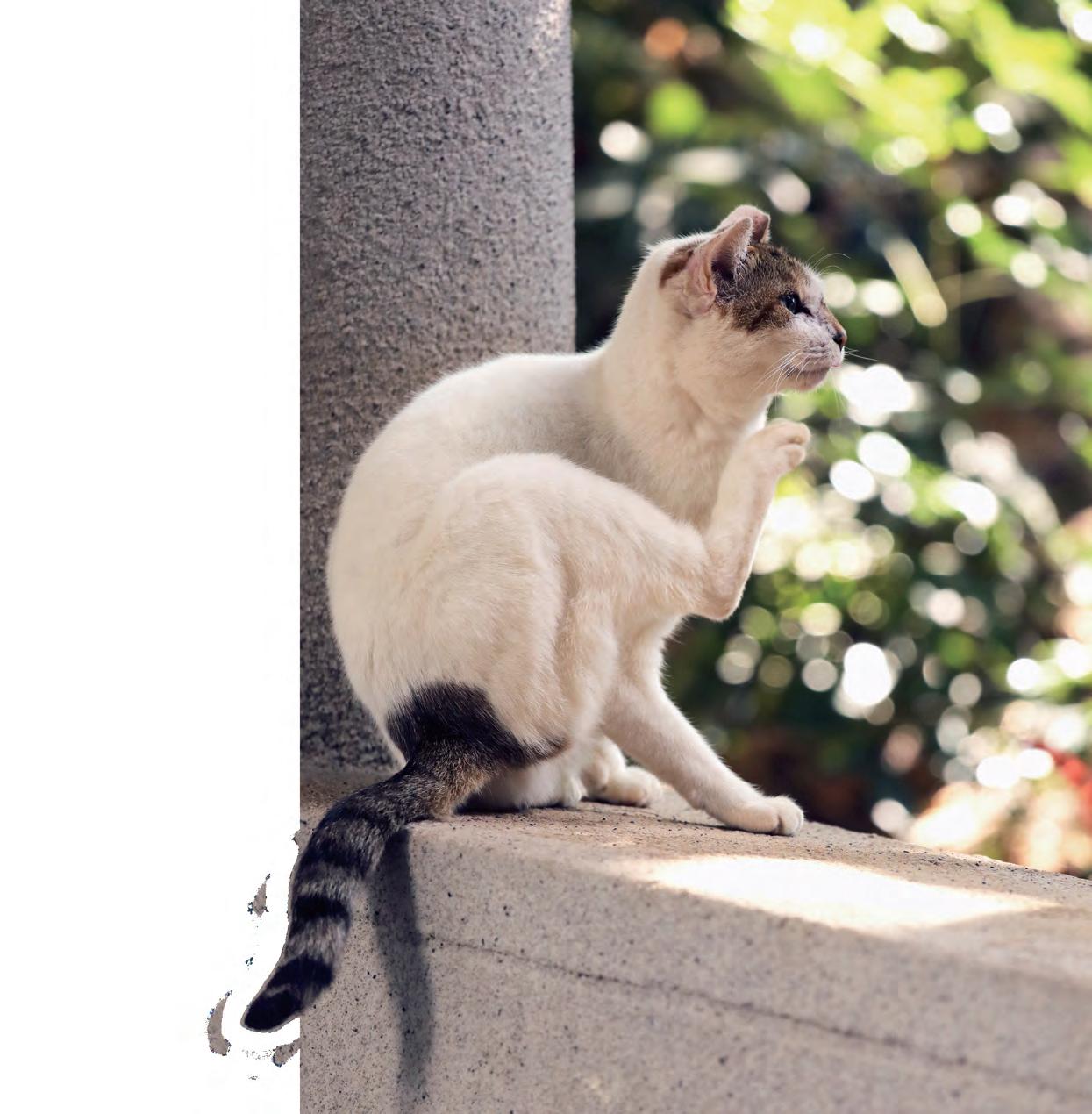
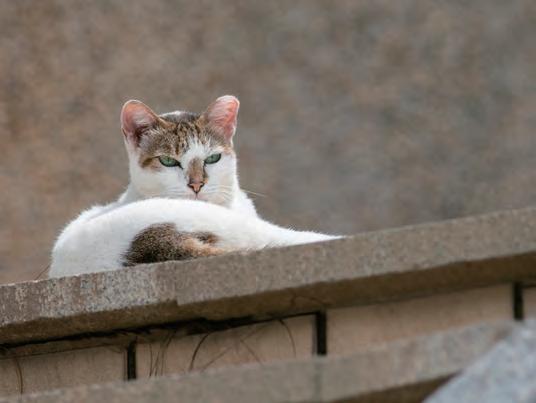


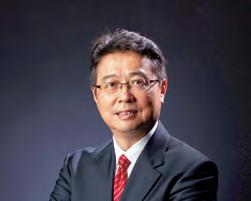
劉智鵬教授
協理副校長(大學拓展及對外事務)暨大學發展及公共事務處處長 歷史系教授
光豬、嶺南牛、培正馬騮頭……」,這是早年廣州幾所知名中 學流行的一首打油詩,傳誦多年至今依然廣為人知,並且在香港發揚 光大,陸續出現好幾個新版本,甚至在詩中加入了香港其他的中學。
今日的嶺南無論大中小學,都繼續承傳「嶺南牛」的教育精神;埋頭 苦幹,服務社會。中環的嶺南會所亦特別推出「嶺南一口牛」作為鎮 店名菜,一時風行。
1995年嶺南學院遷往屯門虎地,為升格大學做好準備。不出幾年, 校園裡出現了大大小小的貓;在教職員和學生的悉心照顧下,「嶺南 貓」成為了嶺大的吉祥物。在芸芸眾貓之中,「小虎」的粉絲滿布校園 內外,是屯門嶺大人見人愛的寵兒。
小虎的來歷無從稽考,相信是此前工地留下的野貓;這頭花貓的毛色 有鮮明的虎狀紋理,大家於是叫牠小虎。南宿入伙後不久,小虎就已 經紅遍宿舍。
小虎走紅並非虛有其表,牠性格體貼溫順,平易近人;露面的時候總 會惹來一班擼貓的學生,擼到爽處,小虎甚至會露出肚皮,擺出一副 非常享受的體態。
嶺南的教職員和學生對小虎愛護有加,除了每天奉上貴價的貓糧,更 有同事為牠在辦公室安排了午睡的安樂窩。小虎每天午飯後就施施然 散步到地下的升降機,讓人替牠按升降機上樓和開門進入樓層,然後 大模斯樣的走進辦公室上床睡覺。醒來之後,小虎會倒轉過程回到地 下,享受早已為牠準備好的下午茶。
小虎和牠的親戚朋友為嶺南人帶來了多年的美好回憶,也製造了不少 問題。有個時期校園到處都是吃剩的貓糧,引來昆蟲甚至老鼠光顧, 影響環境衛生。有些教職員和學生見貓心喜,不時三三兩兩蹲在行車 道上喂貓,險象環生。然後每個宿舍的大堂都堆滿年復一年復積存下 來的貓糧和罐頭,亂七八糟。
在嶺南貓最光輝的日子裡,嶺大有關部門曾經建議學生成立貓會,在 校園劃出範圍以便持續發展養貓活動;結果沒有貓迷響應,最後不了 了之。曾經一度名揚高教界的嶺南貓最後在愛護動物的朋友協助下淡 出嶺大校園,留下了無數令人懷念的溫馨回憶! █

The medical industry is undergoing a significant transformation, driven by the rapid advancements in artificial intelligence (AI). From diagnostics to treatment, AI is revolutionising the way healthcare is delivered, making it more efficient, accurate, and personalised. Among the most promising applications are AI medical and health advisory assistants, which have the potential to fundamentally change the practice of treatment.
AI has found numerous applications in the medical field, particularly in diagnostics and treatment planning. AI algorithms can analyse medical images with high precision, identifying patterns and anomalies that may be missed by the human eye. For instance, AI systems are able to detect early signs of diseases such as cancer, enabling timely intervention and improving patient outcomes. Additionally, AI-powered tools can assist in developing personalised treatment plans by analysing a patient’s medical history, genetic information, and lifestyle factors.
AI medical and health advisory assistants are sophisticated tools designed to support healthcare professionals and patients in managing health conditions by leveraging natural language processing and machine learning to provide accurate medical advice, answer health-related queries, and offer treatment recommendations. They can be integrated into various platforms, including mobile apps, telemedicine services, and electronic health records.
AI health monitor assistants take the role of AI medical assistants a step further by providing continuous day-to-day support for patients, helping them to manage their health more effectively through:
• Dail y health monitoring: AI health monitor assistants can track vital signs such as heart rate, blood pressure, and glucose levels. This continuous monitoring allows for early detection of potential health issues and timely interventions.
• Medic ation adherence: These assistants can remind patients to take their medications on time, ensuring adherence to prescribed treatments. They can also provide information about potential side effects and interactions with other medications.
• Nutritional guidanc e: AI health monitors can offer personalised dietary advice based on a patient’s health conditions, preferences, and goals. They can suggest healthy meal options, track nutritional intake, and help manage conditions like diabetes or hypertension through proper diet.
• Lifestyle coaching: By analysing a patient’s activity levels, sleep patterns, and overall lifestyle, AI health monitor assistants can provide recommendations for improving physical health, such as exercise routines, stress management techniques, and sleep hygiene tips.
• Mental heal th support: Mental well-being is an integral part of overall health. AI health monitor assistants can offer mental health resources, mindfulness exercises, and emotional support as well as identifying early signs of mental health issues, and suggesting appropriate interventions or professional help.
The adoption of Medical and Health Internet of Things (IoT) devices has been on the rise, providing an additional layer of support for AI health monitor assistants. Devices such as smartwatches and smart health rings are becoming increasingly popular for their ability to continuously collect and transmit health data. These devices can monitor heart rate, sleep patterns, physical activity, and other vital signs in real-time, feeding this information into AI health platforms.
This integration allows for a more comprehensive and accurate picture of a patient’s health, enabling more effective monitoring and personalised care. For instance, wearable devices like the Apple Watch or the Oura Ring can alert users to an irregular heartbeat or potential health issues, prompting timely medical consultations.
One of the primary benefits of AI medical assistants is their ability to improve the accuracy of diagnoses. By analysing vast amounts of data, they can identify patterns and correlations that might be overlooked by human clinicians, leading to more accurate and timely diagnoses, ultimately enhancing patient care.
Moreover, AI medical assistants can create personalised treatment plans tailored to each patient’s unique needs. By considering factors such as genetics, lifestyle, and medical history, they can recommend treatments that are more likely to be effective, reducing the trial-and-error approach often seen in traditional medicine.
Improved patient monitoring is another major advantage, continuously monitoring vital signs, symptoms, and progress, and alerting healthcare providers to any worrying changes. This proactive approach may prevent complications and ensure timely interventions.

Michael So
Special Advisor to Associate Vice-President
School of Graduate Studies Adjunct Assistant Professor BBA (Hons) in Risk and Insurance Management (2001)
Additionally, AI medical assistants can reduce the workload for healthcare professionals by handling routine tasks such as scheduling appointments, answering common medical questions, and providing follow-up care instructions, freeing up valuable time for doctors and nurses to focus on more complex and critical cases.
Successful implementations of AI in healthcare which demonstrate its potential are IBM’s Watson for Oncology used to analyse patient data and recommend treatment options based on the latest medical research, and Ada Health’s AIpowered app providing personalised health assessments and guidance, helping users understand their symptoms and seek appropriate care.
A recent development in AI health monitoring is the introduction of HealthTap, an AI-powered virtual health assistant that offers real-time medical advice and appointment scheduling. Another example is the use of AI in wearable devices such as Fitbit and Apple Watch, which monitor physical activity and provide health insights.
AI is set to revolutionise the medical industry, offering numerous benefits in diagnostics, treatment planning, and patient care. AI medical and health advisory assistants in particular have the potential to considerably improve treatment by providing accurate diagnoses, personalised treatment plans, and enhanced patient monitoring. The integration of Medical and Health IoT devices further amplifies these benefits, enabling continuous health monitoring and personalised care. As the technology continues to evolve, embracing AI in healthcare will be essential to realising its full potential and transforming the future of medicine. █

We've all been there - that place where we feel like something important is missing in our lives. As the founder of a community focused on empowering personal growth and collective wellbeing, my goal is to help people cultivate a deeper sense of fulfilment and meaning. Through one-to-one mind-body coaching and group workshops centred around mindfulness, creativity, and building a support system, I've witnessed the transformative effects of establishing a strong inner foundation for thriving and unleashing one’s fullest potential.
I feel called to share some key strategies that you can use to start feeling more fulfilled. Underneath the surface activities of our busy lives stand five core pillars that research shows are strongly linked to well-being, happiness, and even our physical health. Picture them as the support beams of a house - when each one is solid, you have a stable base from which to live your fullest life.
The first pillar is developing healthy daily habits. Accomplished individuals understand the incredible power of small, intentional actions done consistently over long periods of time to shape their realities. As habit expert James Clear stated, "Habits shape our lives, but we can shape our habits." I encourage taking time for self-reflection to gain clarity on passions and priorities, then planning a weekly schedule that protects slots for nurturing relationships, further learning, exercise, acts of kindness, and other uplifting routines before distractions fill your calendar. Discipline allows space for nourishment beyond momentary thrills, and is the foundation for purposeful living.
Finding activities that spark pure, unadulterated joy is the second pillar underlying fulfilment. It's all too easy to fall into the trap of believing we must excel at something to find it meaningful. I place great importance on simply committing to regularly engaging in hobbies or pastimes for no reason other than that they bring you happiness - whether that's dancing, making things, volunteering, reading, or running. Do it for it brings you joy, and indulge in the joy it sparks in you.

Rest and relaxation, the third pillar, are just as essential as work and productivity for holistic well-being. Hong Kong's fast-paced culture often encourages filling every waking moment and disconnecting from what really matters, which is being fully present in the present. I suggest scheduling intentional downtime through various mindfulness practices like journaling, breathwork, and contemplative walks, or other peaceful activities that allow for calm restoration and reduce chronic stress. When you slow down, life touches you in a completely different way.
Nature represents the fourth pillar, with extensive research demonstrating how spending unstructured time in green spaces reduces anxiety and depression, lowers blood pressure, and strengthens our immune systems. For example, scenic views can accelerate healing from surgery. Everything changed for me when I moved to a tropical island, only spending very limited time in the city. Nature is the best therapy, and carving time out to be close to nature will bring you not only a sense of calm, but clarity and serenity. Being close to nature is like going back to your mothers’ embrace. We are, after all, products of nature.
Lastly, cultivating daily gratitude through acknowledging life's simple gifts and beauty brings contentment. By training our focus on appreciating each new day's little lessons and blessings rather than dwelling on envy, we develop resilience, optimism, and purpose that circumstances cannot shake.
Committing to nourishing even one area is shown to increase well-being. When integrated as lifestyle foundations, these pillars provide bedrock for truly successful lives according to individual strengths and talents rather than unrealistic societal benchmarks.
I hope sharing these pillars provides a useful framework for cultivating more fulfilment in your own life. No journey of positive change is ever finished, so don't be afraid to experiment with different habits to see what strengthens your foundations. If this is all too much and you don’t know how to begin, ask yourself this: “What is one thing I can do today to feel more content?” █

抓住社會脈搏,服務民心需求
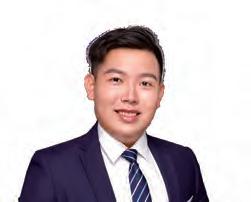
陳港文
廣州南沙區海外聯誼會理事 港利技術顧問(廣州)有限公司行政總裁 環球可持續發展博雅學士(一級榮譽)(2024)
為一名嶺南大學的學子,我深切感受到當下社會對創新創 業的迫切需求。身邊的同學和朋友,無一不對創業懷有憧憬和嚮 往。他們希望通過自主創業,能夠實現個人價值的最大化,獲得 事業的成就感。
嶺南大學為我提供了豐富的創新創業支持資源。學校設立了「嶺 南大學創業基金」,為有想法的同學提供啟動資金支持。同時, 學校還組織了「嶺大創業行動」等系列活動,邀請業界精英來校分 享創業經驗,指導我們的創業路徑。此外,學校的「Networking Session」,也為我建立了廣泛的創業交流平台,讓我能夠有機會 與不同背景的創業者進行深入交流。
然而,創業並非一蹴而就。正如魯迅先生所說,甚麼是路?就是 從沒有路的地方開闢出來,從荊棘遍布的地方開闢出來的。面對 重重困難,堅毅執著的創業者們,用智慧和勇氣一次次戰勝挑 戰,終於創造了一個又一個奇跡。
這種敢於開新路、勇於創新的精神,正是當下香港乃至大灣區社 會所需。在這個追求個性化、差異化的時代,人們對嶄新的產品 和服務有著強烈的需求。唯有不斷創新,才能滿足這些需求,讓 創業者與市場精準對接。
我深信,只要我們努力學習,勇於實踐,定能抓住時代脈搏,洞 察民眾需求。比如,通過深入社區,傾聽老百姓的心聲,我們就 能發現許多創業商機。又或者,關注弱勢群體的困境,設計出切 合他們需求的產品,必將能得到廣泛認可。
創業的意義,不僅在於自我實現,更在於服務社會。一個有血有 肉的創業項目,必定源於對人性的深刻洞察,對民眾需求的精準 把握。只有這樣,創業者才能真正成為時代的主角,成為改變世 界的英雄。
讓我們攜手共進,憑借自身的創新思維和實踐能力,深入社區, 洞察民心所需,用創新創造價值,用創業改變命運。相信只要我 們堅持不懈,定能在嶺南大學的支持下,在創新創業的道路上收 穫豐碩的成果,為社會注入源源不斷的正能量。 █
I shall spare no efforts in planning, coordinating and optimising different administrative and operational resources. I look forward to working closely with colleagues and other members of the community to exemplify the University's motto ‘Education for Service’.
Mr Ernest Chan Chi-man
Designated Vice-President (Administration)

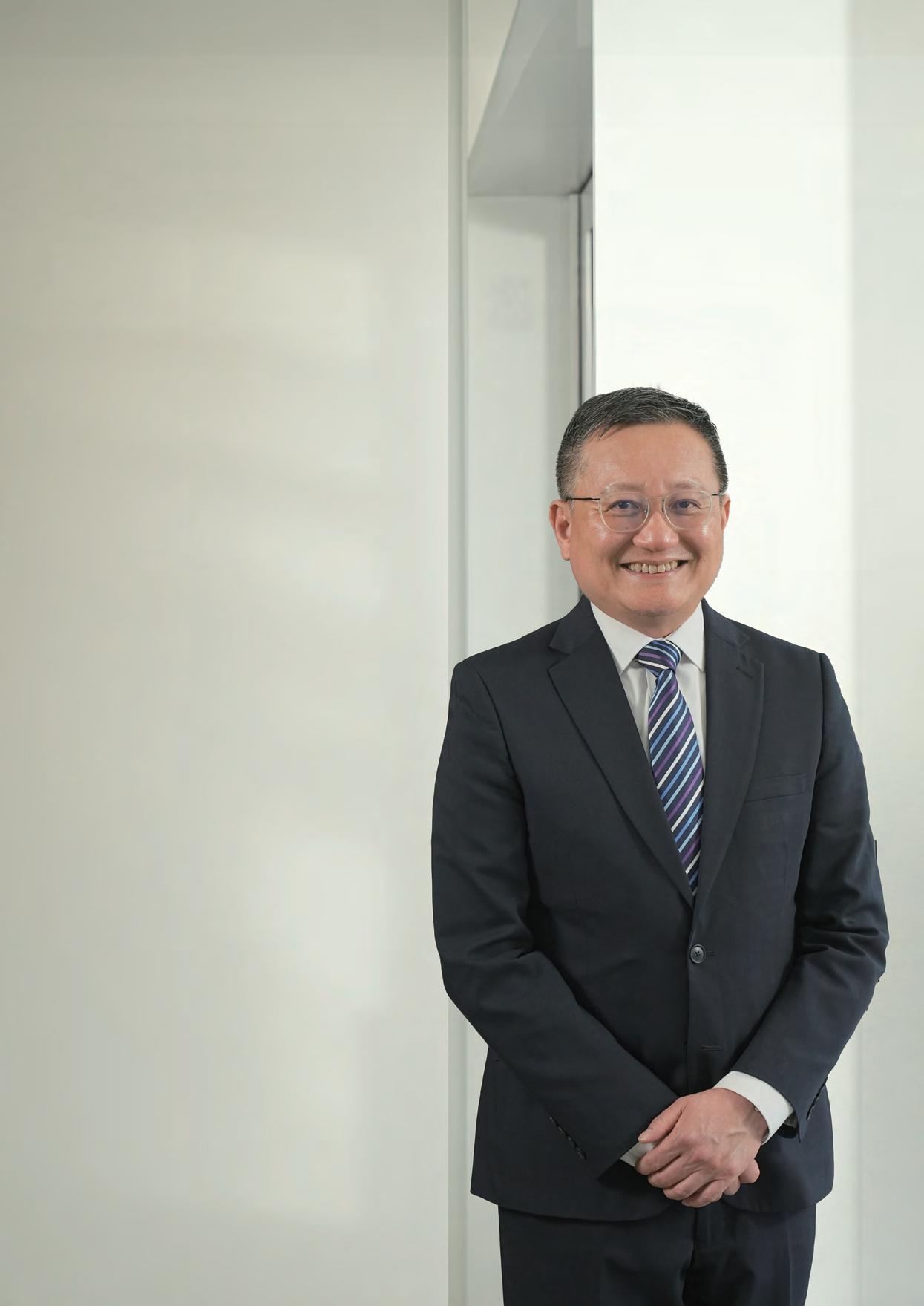




12
Thursday December 2024
6:30 pm – 10:00 pm
2024年12月12日(星期四)
下午6:30至晚上10:00


Grand Ballroom, 3/F, Sheraton Hong Kong Hotel & Towers, Tsim Sha Tsui 尖沙咀香港喜來登酒店三樓宴會廳

Lingnan University Gala Dinner is a signature biennial event to raise funds for the continued development of the University, and an invaluable occasion for the Lingnan community and friends to gather. The Dinner this year is an excellent opportunity for the University to introduce our new chapter to our friends and the community – embracing the digital era and transforming into a comprehensive university in arts and sciences with impactful research and innovations.
嶺南大學週年晚宴乃兩年一度的重大活動, 旨在為大學持續發展籌募資金 ,亦是嶺南社區 及友好聚會的寶貴時刻。今年晚宴將展示嶺南 大學邁向數碼時代的新篇章,展現嶺大如何 蛻變為文理綜合研究型大學。


Enquiry iad@LN.edu.hk / 2616-8975

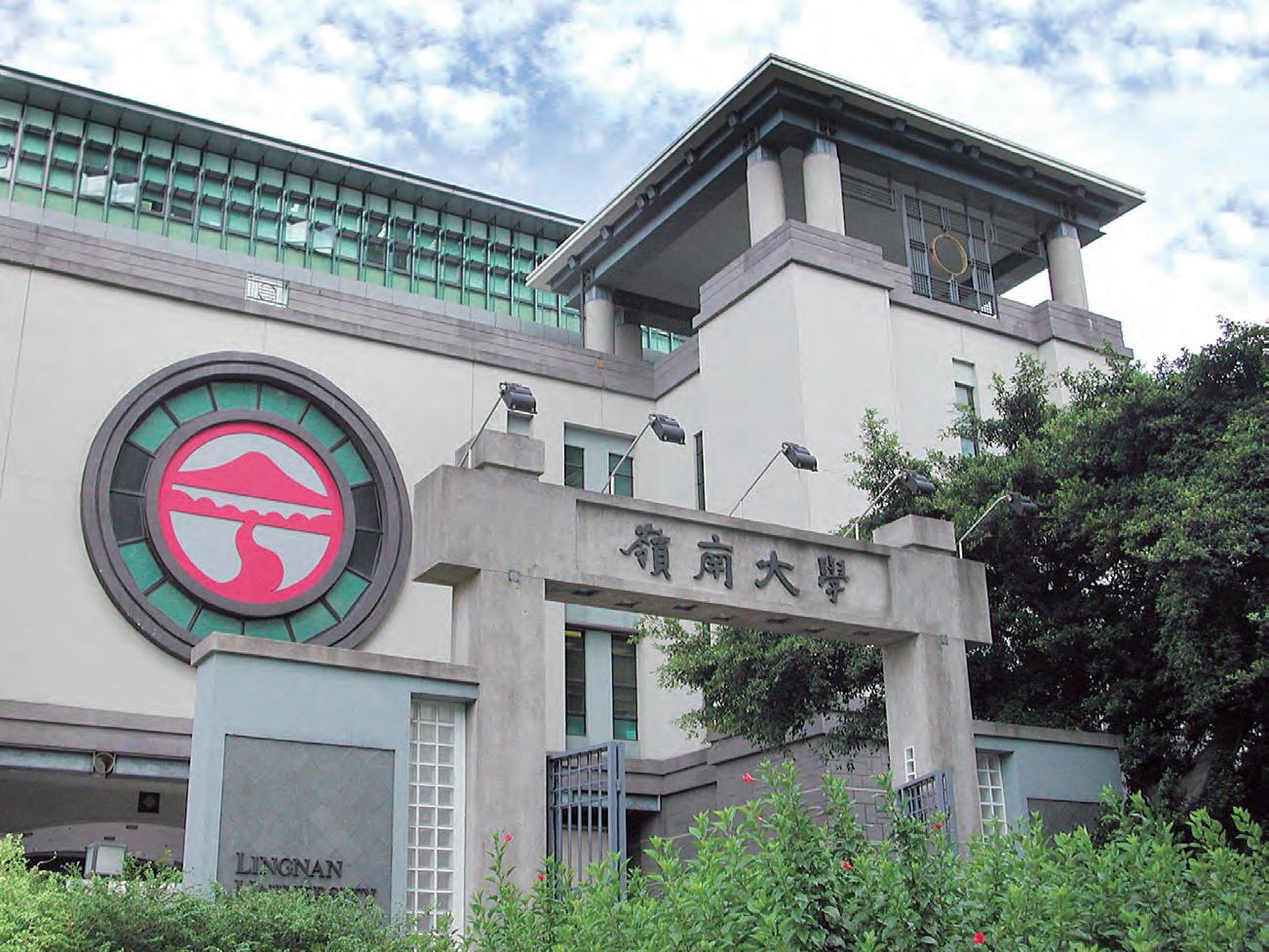

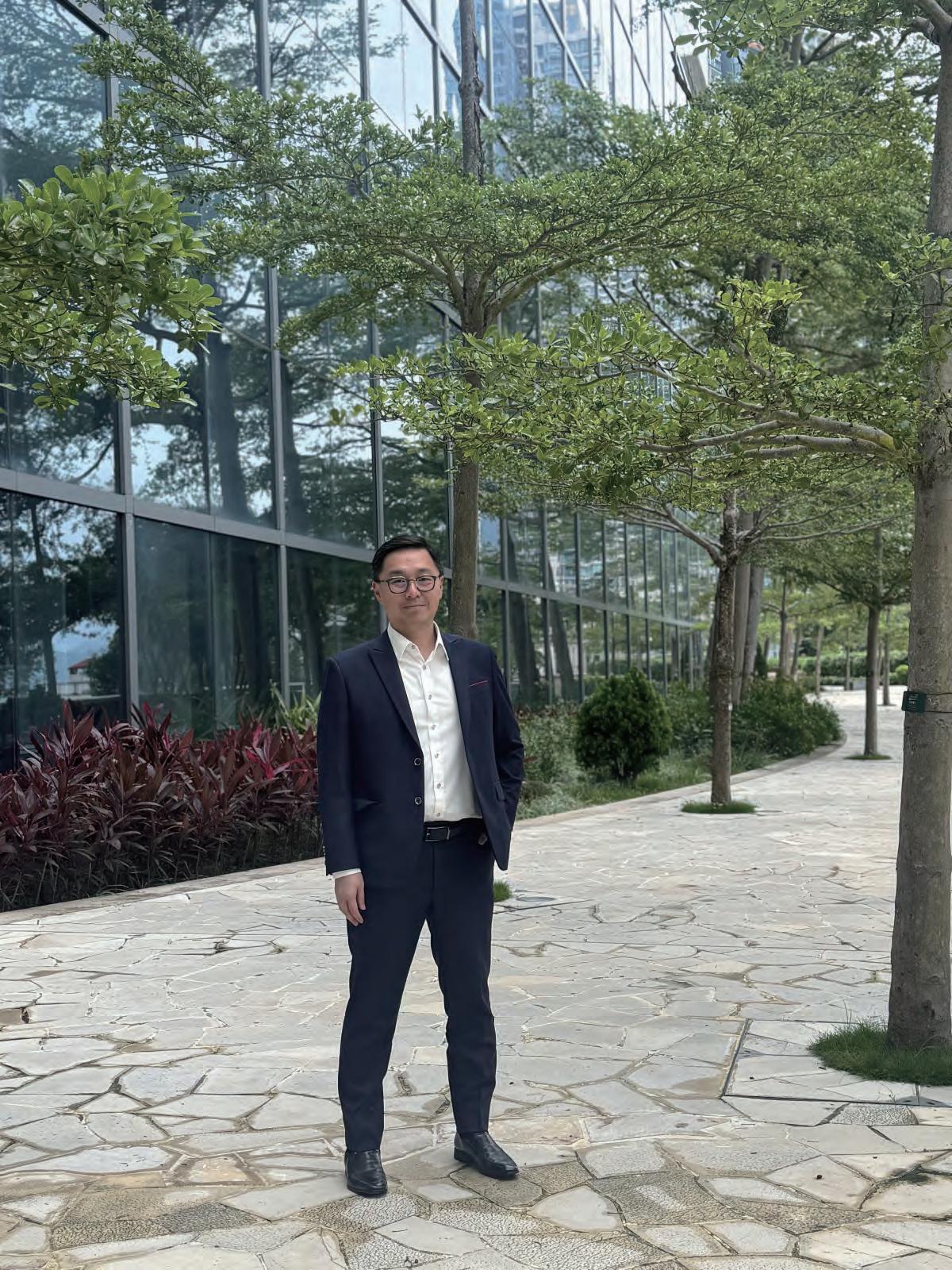
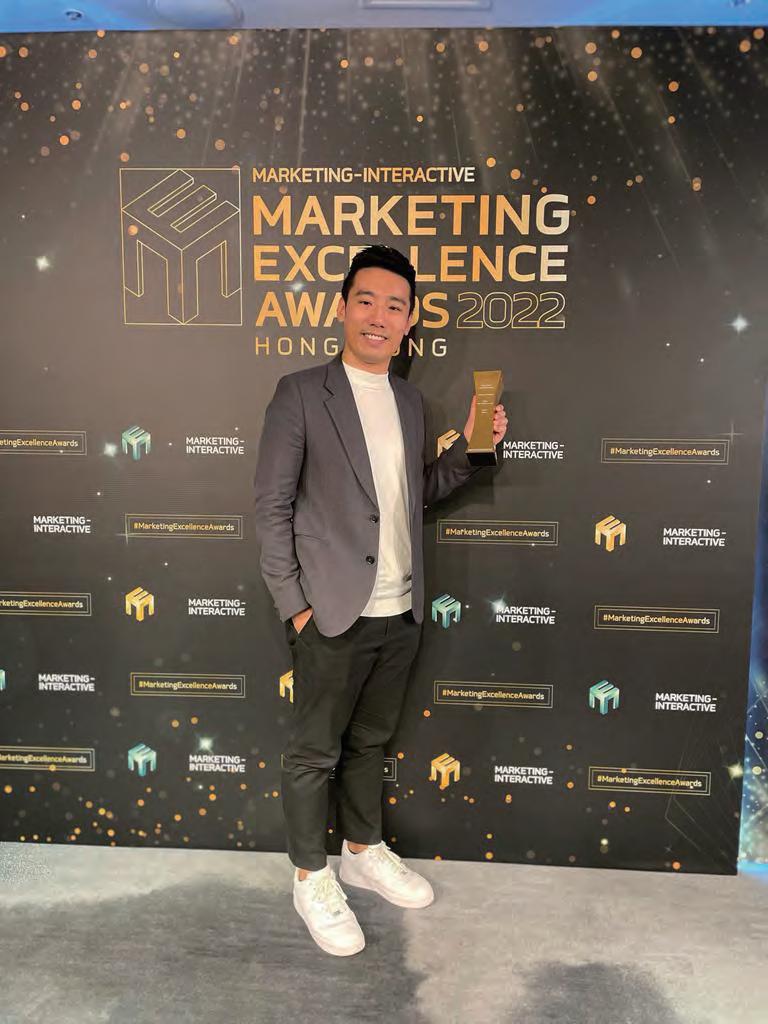
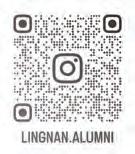
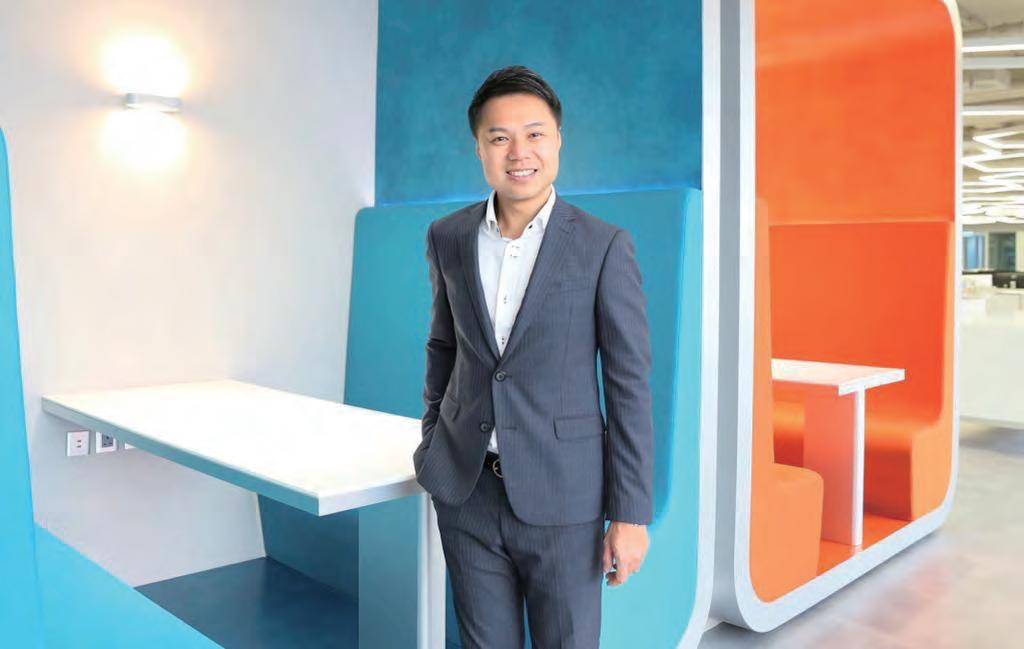
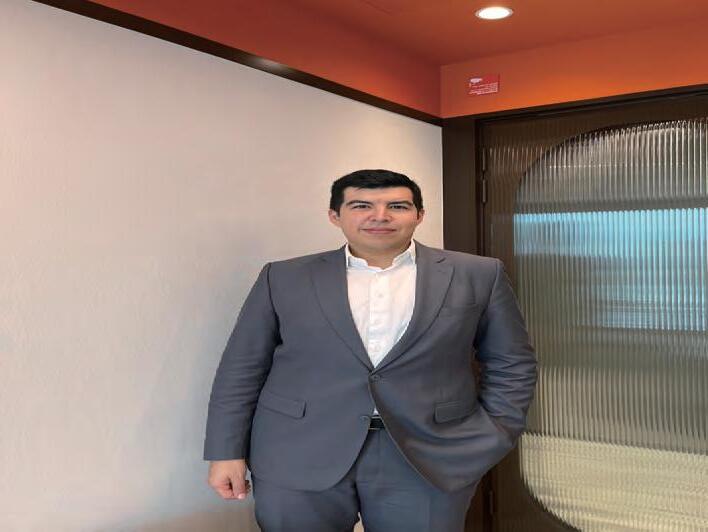

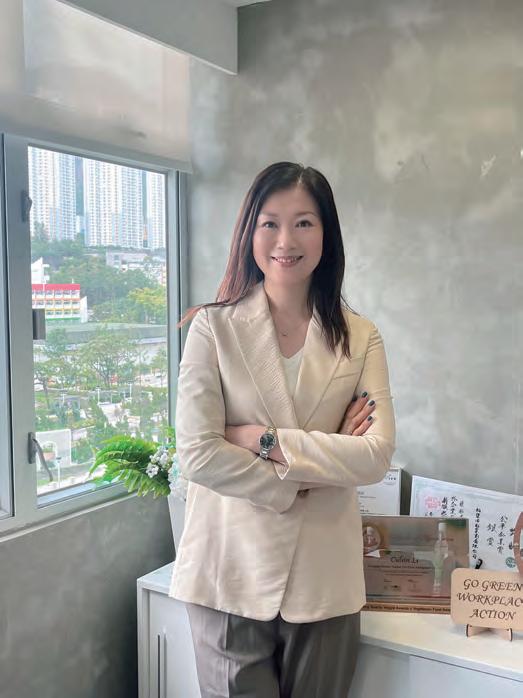
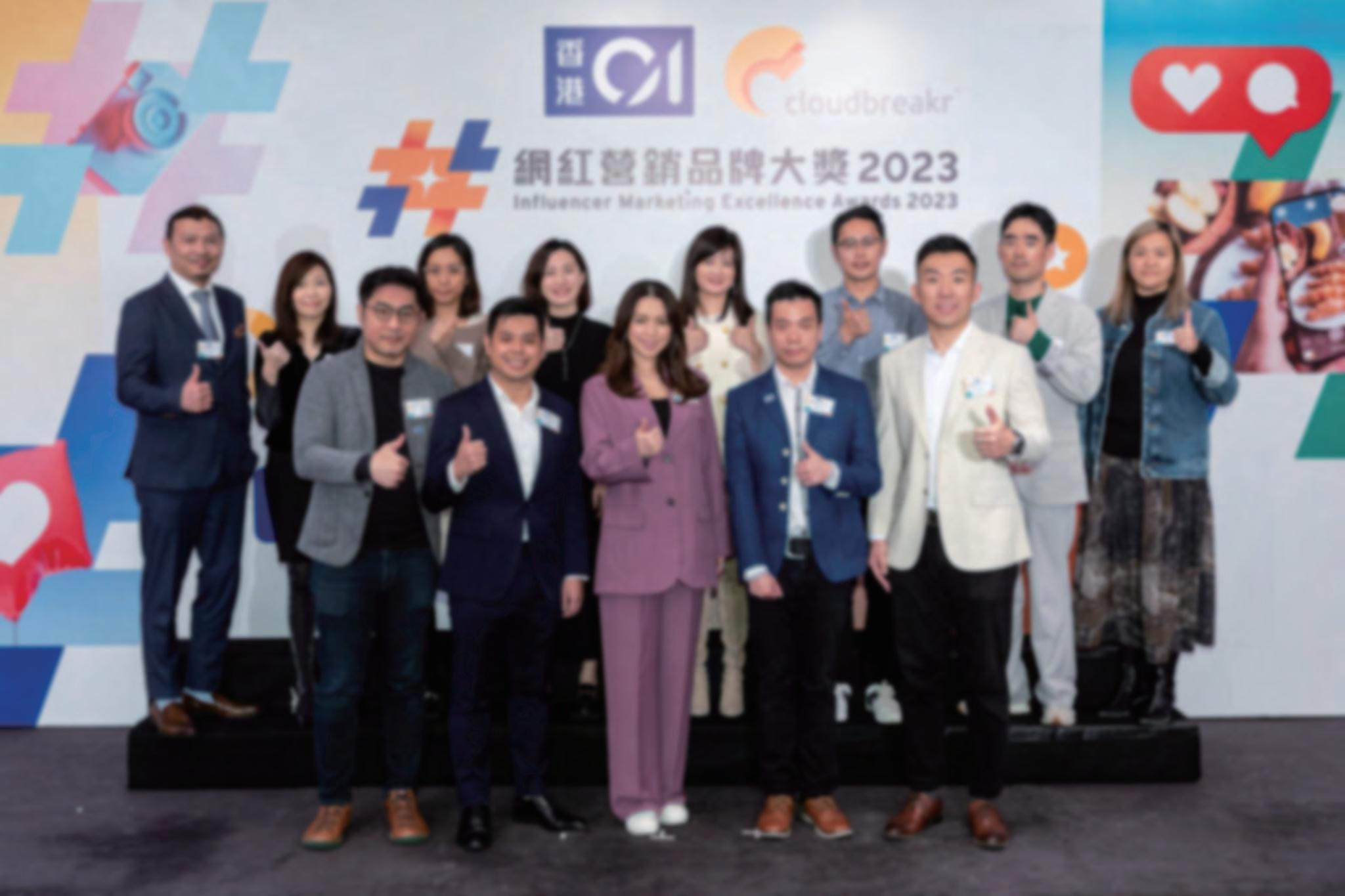
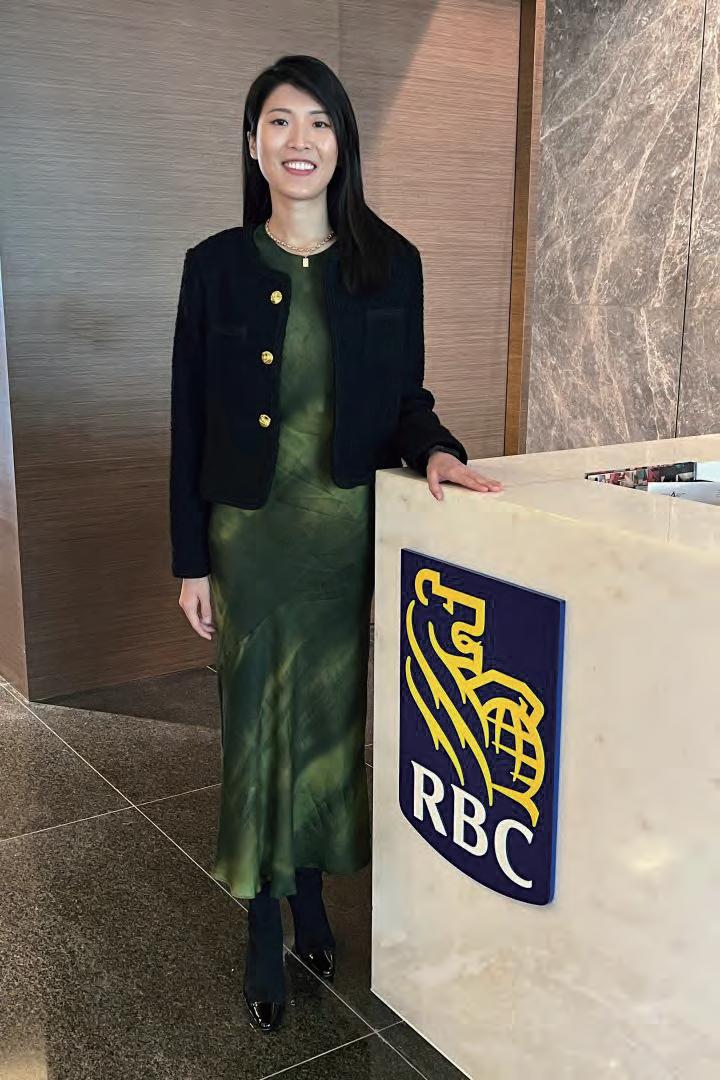
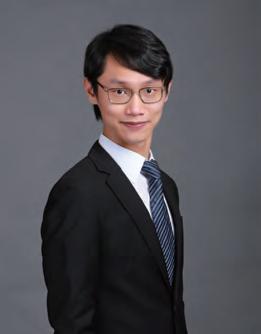


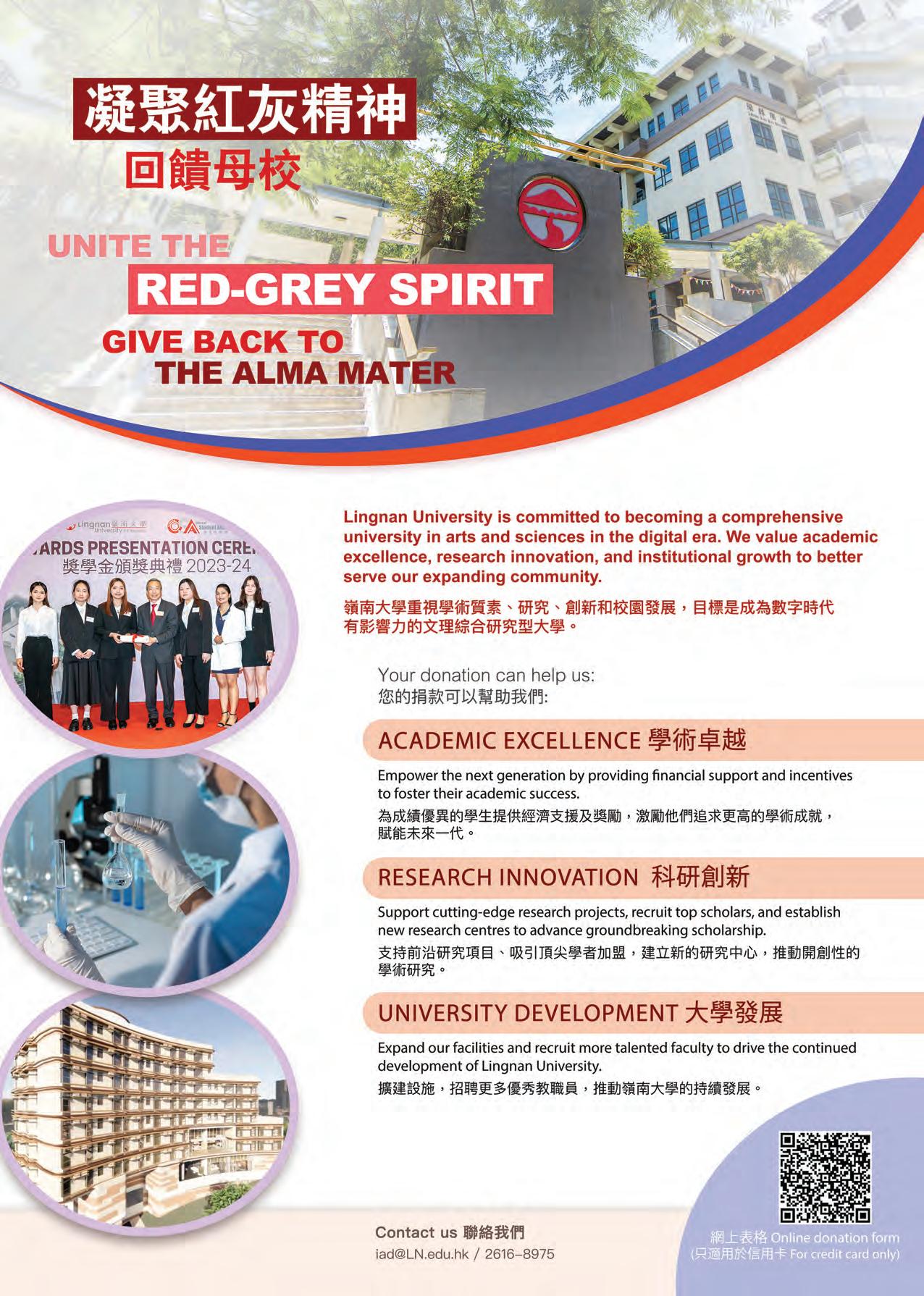
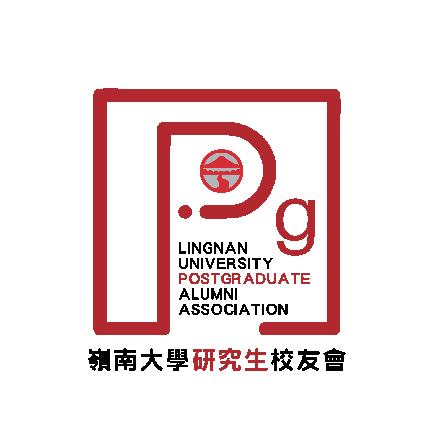
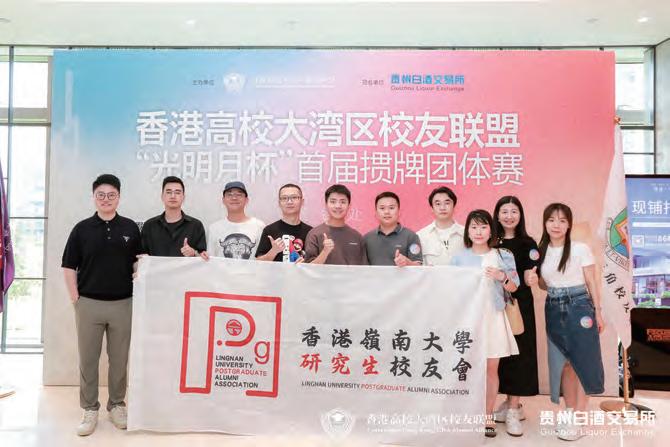
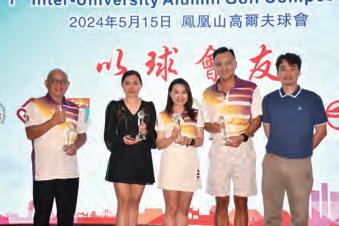

嶺南大學研究生校友會 Lingnan University Postgraduate Alumni Association (LUPAA) 於2020年7月正式成立,宗旨
是成為研究生校友們與學校的一道橋樑,凝聚校友力量,建立 強大的校友網絡,回饋及支持大學持續發展。校友會定期舉辦 各類型的聯誼活動,包括聚餐、康樂活動、就業分享會及各類興 趣班等,積極聯繫及團結校友的感情!
嶺南大學研究生校友會參與香港高校大灣區校 友聯盟「光明月杯」首屆摜牌團體賽,場面熱鬧。
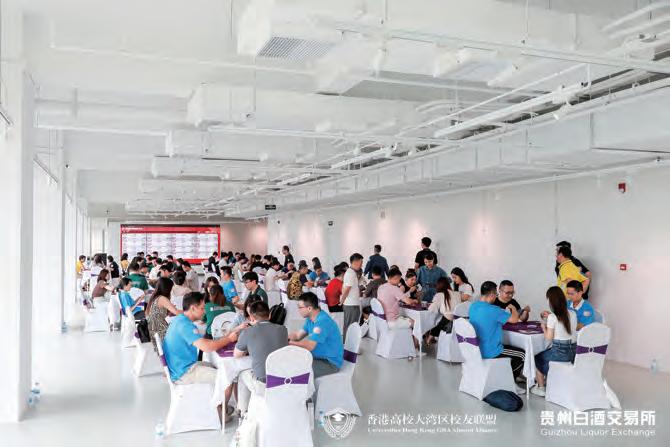
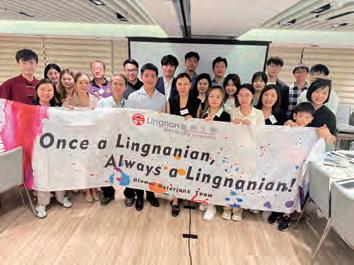
嶺南大學研究生校友會第四屆週年會員 大會
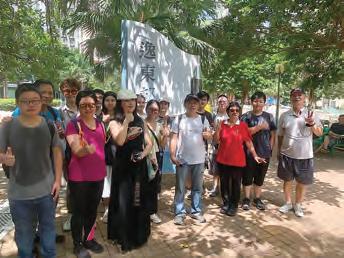
漫游香港文化主題行山活動

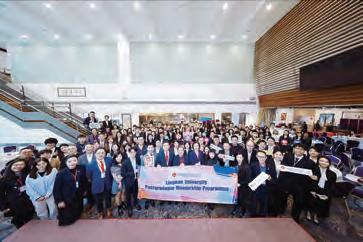
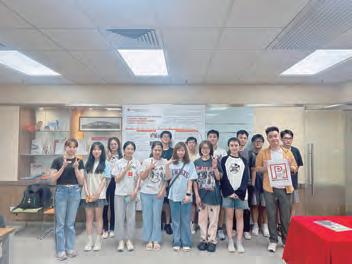
狼人殺卡牌桌遊活動
校友會為研究生師友計劃其中一個合辦 單位,積極支持計劃學生
關注校友會最新動態



自成立以來,本會透過舉辦各 類活動,如聯誼、分享會和其他 活動,加強校友之間的感情,並 與母校保持緊密聯繫。
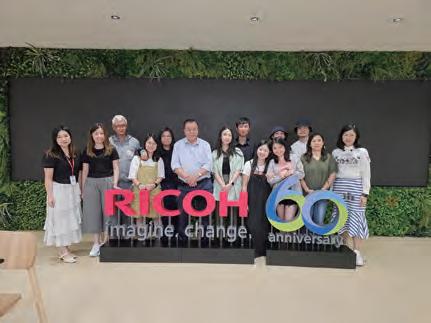
手作霓虹燈
工作坊 + 參觀RICOH
混合式工作間


唱作音樂人林家謙 校友線上分享會

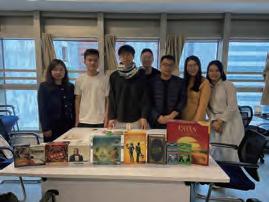
桌遊同樂日 凝聚不同界別的 校友輕鬆渡過週末
嶺南大學本科生校友會(Lingnan University Undergraduate Alumni Association, LUUAA)於2021年初正式成立。校友會幹
事由來自不同學系和不同畢業年份的嶺南大學校友組成,致力於 團結所有本科生校友。目標是擴展校友網絡,加強校友與母校的 聯繫,傳承嶺南大學的校訓和博雅教育精神。

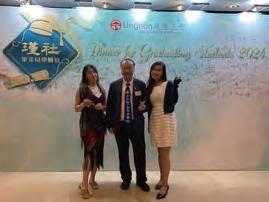
參加大學發展及 公共事務處舉辦的 「瑾社畢業同學晚宴」
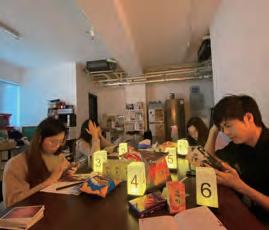
劇本殺同樂日 帶校友進行
鬥智鬥力的推理遊戲
校友會也積極響應及支持母校的年度活動盛事,如校友 日、畢業晚宴、大型典禮,與校友共度美好時光。
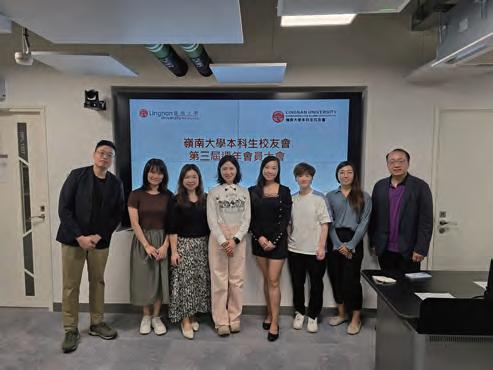



Our exclusive stories offer a blend of news, achievements and goodwill to Lingnanians, plus access to upcoming alumni activities, and institutional advancement and development.
To: Office of Institutional Advancement and Public Affairs, Lingnan University Enquiries: (852) 2616 8989
Fax: (852) 2466 3730
Email: oiapa@LN.edu.hk
Name: (Prof / Dr / Mr / Ms / Miss)
Lingnan faculty or staff Lingnan student Lingnan alumnus
Others, please state:
Postal address:
Email address:
Personal Information Collection Statement
Purpose of Collection
The personal data and other related information provided by you by means of this form will be used by the Office of Institutional Advancement and Public Affairs (OIAPA) of Lingnan University for subscription and mailing of the LINGNAN UNIVERSITY MAGAZINE (the magazine), and related purposes. The provision of personal data and other related information to the subscription is voluntary.
Transfer of Information
Where necessary, the information provided by you may also be provided to other authorised departments/persons, including the designated printing house and staff of the University responsible for publishing works related to the magazine.
Retention of Personal Data
Personal data will not be kept longer than is necessary for the fulfillment of the purpose for which it is collected. Normally, the retention period for all the data collected will not exceed two months after you cancel the subscription, except with subsisting reasons. You have complete control over the information provided by you. Only with your express consent, you may at your sole discretion request the OIAPA to remove the information provided at any time.
Access to Personal Data and Enquiry
You have a right to request access to, and to request the correction of, the personal data and other related information you supplied in accordance with the provisions of the Personal Data (Privacy) Ordinance (Cap. 486). Such requests and enquiries should be made by any one of the following means: (a) by phone to 2616 8989; (b) by fax to 2466 3730; or (c) by email to oiapa@LN.edu.hk
By signing and submitting this form, I agree to Lingnan University’s Personal Information Collection Statement.
Signature:
Date:
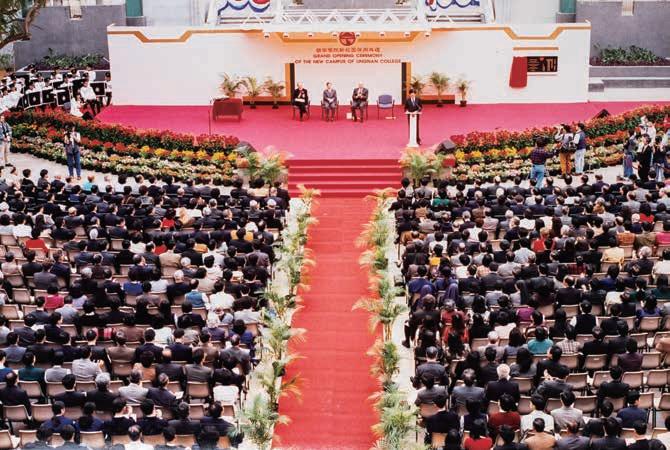
嶺南學院新校園啟用典 禮 (1996)
Grand Opening Ceremony of The New Campus of Lingnan College (1996)
把你的嶺南回憶寄給我們至 LUmagazine@LN.edu.hk
Send your memories of Lingnan to LUmagazine@LN.edu.hk


